- International edition
- Australia edition
- Europe edition


Drowned in sound: how listening to music hinders learning
In his series of articles on how psychology research can inform teaching, Bradley Busch picks an academic study and makes sense of it for the classroom. This time: listening to music while studying
- Read more Lessons from Research
There is a wealth of psychology research that can help teachers to improve how they work with students, but academic studies of this kind aren’t always easy to access or translate into the realities of classroom practice. This series seeks to redress that by taking a selection of studies and making sense of the important information for teachers, as we all seek to answer the question: how can we help our students do better at school? This time, we consider growth mindset.
Many students do their homework and revision while listening to music. Many of them will swear that listening to their favourite songs makes them study better . But does music help or hinder learning? And does it matter what type of music you listen to while revising?
Researchers from the applied psychology department of Cardiff Metropolitan University led a study to answer this question. The authors, Nick Perham and Harriet Currie, assigned students into one of four groups: the first revised in silence, the second revised while listening to music with lyrics they liked (which included songs from One Direction and Katy Perry), the third group revised to music with lyrics they did not like (which comprised of very heavy metal bands), and the fourth group revised listening to music without lyrics.
The participants then took a test on the passages they had been revising, rating how distracting their environment had been, as well as writing down their predictions for how well they thought they had done.
What are the main findings?
- Students who revised in quiet environments performed more than 60% better in an exam than their peers who revised while listening to music that had lyrics.
- Students who revised while listening to music without lyrics did better than those who had revised to music with lyrics.
- It made no difference if students revised listening to songs they liked or disliked. Both led to a reduction in their test performance.
- Students who revised in silence rated their environment as less distracting and accurately predicted that this would lead to better performances in subsequent tests.
Related research
There are some benefits to listening to music while performing certain tasks. It can be quite motivating and it can improve mood (listening to your favourite song tends to make people smile, for example). But it does not help people learn new or complex material.
The misconception that music does help us learn stems from a series of studies linked to the “ Mozart effect ”, which found that people performed better on a series of cognitive tasks after listening to 10 minutes of Mozart. Participants in these studies appeared to be getting smarter and performing better in tests.
However, further research has since revealed this is not the case. While listening to music before a task can make someone feel better, listening to it while trying to learn something new tends not to help. This is because music – especially tunes with lyrics – can take up processing space. This conflicts with the material you are trying to learn, effectively creating a bottleneck in your memory, as there is less space to process what you are revising.
What does this mean for the classroom?
It is important that students are made aware of the pitfalls of listening to music when revising. Perham and Currie’s study found that students rated the quiet environment as less distracting and better for them, yet many students continue to listen to music during their homework. Why? Perhaps they’re doing so out of habit, or they confuse what improves their mood with what leads to good revision, or it alleviates boredom. Perhaps it’s simply because everyone else is doing it.
Students need to know how to revise well. There may well be a time and place to listen to music during the course of their revision, but not when they are learning new and complex material. After all, silence is golden.
Bradley Busch is a registered psychologist, director at InnerDrive and author of Release Your Inner Drive . Follow @Inner_Drive on Twitter, and get advice on improving memory and a visual summary of this research on his website
Follow us on Twitter via @GuardianTeach , like us on Facebook , and join the Guardian Teacher Network the latest articles direct to your inbox
Looking for a teaching job? Or perhaps you need to recruit school staff? Take a look at Guardian Jobs , the education specialist
- Teacher Network
- Lessons from research
- Higher education
Comments (…)
Most viewed.

M usic is an indispensable part of our life and you will hardly meet a person who doesn’t like listening to it. Of course, it can be a music of different genres, with or without lyrics, modern or classical, but people enjoy listening to music and can combine a variety of activities with it.
Young generations are also fans of music and every second student has always his headphones. Students listen to music everywhere: on-the-go, in public transport, in the shower and even when they do their homework. However, the last habit is quite controversial as scientists have different opinions about the effect music produces on studying. Let’s analyze the viewpoints of different scholars and decide whether pros or cons of listening to music while you do your homework will outweigh.
How can music be beneficial?
It is not surprising to see different studies about the influence of music on learning and their results are sometimes opposite to each other. Some scientists claim that music can influence the brain work positively as well as provide a learner with some huge advantages including:

- Useful for creative and reflection activities The study done at John Hopkin’s University confirms the viewpoint that music can be a great boost in writing , brainstorming, project work, problem-solving activities. It can improve productivity as well as be a perfect solution for several minutes of rest to recharge for the next activity.

Negative impact of music on doing homework
At the same time, many students still call music a distraction. Why does it happen? The answer is simple, students speak about absolutely different styles of music.
It goes without saying that listening to the song with words you will be more likely to distract from studying by repeating the words of the singer. This fact was confirmed by the University of Phoenix where researchers have proved that lyrics activates language-processing centers of the brain and that results in a lack of concentration and difficulties to recall the memorized information .
The last fact was described in the book “ Educational Psychology ”. Context-dependent learning means that people will recall information better in the same environment how they were memorizing it. If it was a music background at home, there are few chances that this background will be at school too, so information recalling will suffer greatly as well.
One more apparent point is a huge difference in people’s learning styles. Some people will have a much better productivity studying in silence, the others chewing a burger and one more group watching a TV. Music can be beneficial only to some of the students as any sound can affect the performance of others negatively. Consequently, it is impossible to make the only right conclusion about the ultimate benefit or the toughest negative impact of music on student’s performance of the home assignment. The only conclusion is apparent: everything depends on the person and his study environment .
- Latest Posts
Latest posts by Noplag ( see all )
- Periodix: intelligent job matching for freelancers | Noplag review - March 30, 2018
- Hard Work VS Talent: Who Beats Whom? - December 15, 2017
- Listening To Music While Doing Homework: Is It A Good Idea? - December 12, 2017
Share the post "Listening To Music While Doing Homework: Is It A Good Idea?"
Post navigation
Leave a reply cancel reply.
Your email address will not be published. Required fields are marked *
Featured on
We use cookies to improve your experience on our site and to show you personalised advertising. To find out more, read our privacy policy and cookie policy
- Media Centre

Is it OK to listen to music while studying?
October 17, 2019
UOW researcher answers this tricky question as NSW students start written exams for the HSC.
It’s a good question! In a nutshell, music puts us in a better mood, which makes us better at studying – but it also distracts us, which makes us worse at studying.
So if you want to study effectively with music, you want to reduce how distracting music can be, and increase the level to which the music keeps you in a good mood.
Read more: Curious Kids: Why do adults think video games are bad?
Music can put us in a better mood
You may have heard of the Mozart effect – the idea that listening to Mozart makes you “smarter”. This is based on research that found listening to complex classical music like Mozart improved test scores, which the researcher argued was based on the music’s ability to stimulate parts of our minds that play a role in mathematical ability.
However, further research conclusively debunked the Mozart effect theory: it wasn’t really anything to do with maths, it was really just that music puts us in a better mood.
Research conducted in the 1990s found a “Blur Effect” – where kids who listened to the BritPop band Blur seemed to do better on tests. In fact, researchers found that the Blur effect was bigger than the Mozart effect, simply because kids enjoyed pop music like Blur more than classical music.
Being in a better mood likely means that we try that little bit harder and are willing to stick with challenging tasks.

Music can distract us
On the other hand, music can be a distraction – under certain circumstances.
When you study, you’re using your “working memory” – that means you are holding and manipulating several bits of information in your head at once.
The research is fairly clear that when there’s music in the background, and especially music with vocals, our working memory gets worse .
Likely as a result, reading comprehension decreases when people listen to music with lyrics . Music also appears to be more distracting for people who are introverts than for people who are extroverts, perhaps because introverts are more easily overstimulated.
Some clever work by an Australia-based researcher called Bill Thompson and his colleagues aimed to figure out the relative effect of these two competing factors - mood and distraction.
They had participants do a fairly demanding comprehension task, and listen to classical music that was either slow or fast, and which was either soft or loud.
They found the only time there was any real decrease in performance was when people were listening to music that was both fast and loud (that is, at about the speed of Shake It Off by Taylor Swift, at about the volume of a vacuum cleaner).
But while that caused a decrease in performance, it wasn’t actually that big a decrease. And other similar research also failed to find large differences.

So… can I listen to music while studying or not?
To sum up: research suggests it’s probably fine to listen to music while you’re studying - with some caveats.
It’s better if:
- it puts you in a good mood
- it’s not too fast or too loud
- it’s less wordy (and hip-hop, where the words are rapped rather than sung, is likely to be even more distracting)
- you’re not too introverted.
Happy listening and good luck in your exams!
Read more: Curious Kids: Why do old people hate new music?
Timothy Byron , Lecturer in Psychology, University of Wollongong
This article is republished from The Conversation under a Creative Commons license. Read the original article .
UOW academics exercise academic freedom by providing expert commentary, opinion and analysis on a range of ongoing social issues and current affairs. This expert commentary reflects the views of those individual academics and does not necessarily reflect the views or policy positions of the University of Wollongong.
You may also be interested in
Curious Kids: is it OK to listen to music while studying?
Lecturer in Psychology, University of Wollongong
Disclosure statement
Timothy Byron does not work for, consult, own shares in or receive funding from any company or organisation that would benefit from this article, and has disclosed no relevant affiliations beyond their academic appointment.
University of Wollongong provides funding as a member of The Conversation AU.
View all partners

I am in year 11 and I like to listen to music when I am studying, but my dad says that my brain is spending only half of its time studying and the other half is distracted by listening. He says it is better to leave my phone out of my room and concentrate on studying rather than listening to music. Is it OK to listen to songs when I am studying? – Robert, Year 11 student.

It’s a good question! In a nutshell, music puts us in a better mood, which makes us better at studying – but it also distracts us, which makes us worse at studying.
So if you want to study effectively with music, you want to reduce how distracting music can be, and increase the level to which the music keeps you in a good mood.
Read more: Curious Kids: Why do adults think video games are bad?
Music can put us in a better mood
You may have heard of the Mozart effect – the idea that listening to Mozart makes you “smarter”. This is based on research that found listening to complex classical music like Mozart improved test scores, which the researcher argued was based on the music’s ability to stimulate parts of our minds that play a role in mathematical ability.
However, further research conclusively debunked the Mozart effect theory: it wasn’t really anything to do with maths, it was really just that music puts us in a better mood.
Research conducted in the 1990s found a “Blur Effect” – where kids who listened to the BritPop band Blur seemed to do better on tests. In fact, researchers found that the Blur effect was bigger than the Mozart effect, simply because kids enjoyed pop music like Blur more than classical music.
Being in a better mood likely means that we try that little bit harder and are willing to stick with challenging tasks.

Music can distract us
On the other hand, music can be a distraction – under certain circumstances.
When you study, you’re using your “working memory” – that means you are holding and manipulating several bits of information in your head at once.
The research is fairly clear that when there’s music in the background, and especially music with vocals, our working memory gets worse .
Likely as a result, reading comprehension decreases when people listen to music with lyrics . Music also appears to be more distracting for people who are introverts than for people who are extroverts, perhaps because introverts are more easily overstimulated.
Some clever work by an Australia-based researcher called Bill Thompson and his colleagues aimed to figure out the relative effect of these two competing factors - mood and distraction.
They had participants do a fairly demanding comprehension task, and listen to classical music that was either slow or fast, and which was either soft or loud.
They found the only time there was any real decrease in performance was when people were listening to music that was both fast and loud (that is, at about the speed of Shake It Off by Taylor Swift, at about the volume of a vacuum cleaner).
But while that caused a decrease in performance, it wasn’t actually that big a decrease. And other similar research also failed to find large differences.

So… can I listen to music while studying or not?
To sum up: research suggest it’s probably fine to listen to music while you’re studying - with some caveats.
It’s better if:
- it puts you in a good mood
- it’s not too fast or too loud
- it’s less wordy (and hip-hop, where the words are rapped rather than sung, is likely to be even more distracting)
- you’re not too introverted.
Happy listening and good luck in your exams!
Read more: Why do old people hate new music?
Hello, curious kids! Have you got a question you’d like an expert to answer? Ask an adult to send your question to [email protected]
- Music therapy
- Curious Kids
- effective studying

Events and Communications Coordinator

Assistant Editor - 1 year cadetship

Executive Dean, Faculty of Health

Lecturer/Senior Lecturer, Earth System Science (School of Science)

Sydney Horizon Educators (Identified)

Does Listening to Music Really Help You Study?
Experts from the department of psychology explain whether or not music is a helpful study habit to use for midterms, finals, and other exams.

By Mia Mercer ‘23

Students have adopted several studying techniques to prepare for exams. Listening to music is one of them. However, listening to music may be more distracting than helpful for effective studying.
There’s no season quite like an exam season on a university campus. Students turn to varying vices to help improve their chance of getting a good grade. While some chug caffeine, others turn up the music as they hit the books.
Although listening to music can make studying more enjoyable, psychologists from the Department of Psychological & Brain Sciences have found that this popular study habit is more distracting than beneficial.
“ Multitasking is a fallacy; human beings are not capable of truly multitasking because attention is a limited resource, and you can only focus on so much without a cost,” cognitive psychologist Brian Anderson said. “So when you’re doing two things at the same time, like studying and listening to music, and one of the things requires cognitive effort, there will be a cost to how much information you can retain doing both activities.”
In basic terms of memory, Anderson explained that we do a better job of recalling information in the same conditions in which we learn the material. So when studying for an exam, it’s best to mimic the exam conditions.
“If you have music going on in the background when you study, it’s going to be easier to recall that information if you also have music on in the background when you take the exam,” Anderson said. “However wearing headphones will almost certainly be a violation during most exams, so listening to music when you’re studying will make it harder to replicate that context when you’re taking an exam.”
Even though experts suggest listening to music can hinder your ability to retain information while studying, some students choose to continue the practice. Steven Smith, cognitive neuroscientist for the Department of Psychological & Brain Sciences , provided some suggestions for students who wish to continue this study habit.
“In general, words are distracting,” Smith shared. “So if you want to listen to music while you study, try to listen to something that does not have words, or if it does have words, hopefully, it’ll be in a language that you don’t understand at all, otherwise that’s going to distract from the stuff you’re trying to study.”
Smith also suggested listening to familiar background music, because it’s less distracting than something new or exciting. Additionally, Smith provided some principles that generally result in better exam results.
“Make sure your studying is meaningful because comprehension gets you so much further than raw repetition,” Smith shared. “Also, you must test yourself, because it’s the only way you can learn the material; this is called the testing-effect. And finally, try to apply the spacing-effect, where you spread out your study sessions rather than cramming your studying all together, allowing for better memory of the material.”
Regardless of how students decide to study for exams, it’s important to remember that we all learn differently.
“There are individual differences between everyone,” Smith said. “Some people need a study place that is boring, predictable, and exactly the same so that they can concentrate, and others find it more beneficial to go to different places to study. It’s true that there are different personalities, so try and find what study habit works best for you.”
- The College at Work
- Department of Psychological and Brain Sciences
- Preparing for Exams

- Listening to Music While Doing ...
- 4 Skincare Tips from the ...

Listening to Music While Doing Homework and Studying: Is It A Good Idea?
words Al Woods

Image credit
Nowadays, most students go to the library with their headphones and to the study halls. Although, the question is, does listening to music when studying help? Yes, it may help despite the distractions that come your way. Music can put you in a better mood, and in a better position to study.
You can choose to listen to soothing music because it has several advantages, like helping you beat anxiety and beating your stress while doing your assignments. The following reasons show that listening to music when doing your homework is a good idea.
Reduces anxiety
When you’re studying, anxiety can be a crippling blockade, and some ways can help you beat the heat, especially when you’re writing that extended essay you were given from school as your homework. For example, you were issued a complimentary massage during each study session in your college period. As a result, your anxiety and tension levels may lower when doing your homework. So, the music’s effect on your anxiety levels during your homework time can be similar to the impact you have when getting a massage.
Your favorite music tune can reduce your anxiety as you do your assignment because it helps you feel relaxed. Also, you can opt to listen to rap music when studying or doing your homework because of the uplifting effect it may give you that may help you manage, accept, and know how to deal with your mental health issues. Since there is more than one genre of rap, you can look for the one that gives your brain the extra support it may want.
Increases creativity
You may be in a situation where you are working on some assignment stressing you, and you don’t want to die of boredom . In that case, you can consider putting on your school headphones with microphone , then set the volume that you think is best for you, go through your playlist and choose your favorite songs, then enjoy yourself with the most soothing music.
It would help if you regulated your music to avoid distraction and concentrate on your work. The background music you put can help stimulate your abstract thinking and tune your brain towards a creative work mode. That’s why most creative people get attracted to the background noise music played in the cafes or the dams.
Energy motivation
You may be needing a quick pick me up, especially before a marathon writing session, and in this case, one or two stimulating songs can help in boosting your drive in tackling the awaiting drudgery. The music gets to engage the autonomic nervous system of your body, which shows that music can help control your psychological emotions at a certain level. Also, when the music you’re listening to is correct, it can help in serving as a fantastic stimulant that will help your pulse and accelerate breathing. It will help you do your homework well while motivated.
It can help ease your stress
It’s the middle of the semester, and your stress has run high because of the many undone assignments whose deadlines are catching up with you soon. It can be the perfect time to start doing your homework while listening to music. Music can help you reduce stress, especially when it’s not so loud. Even if you may be having some health problems, music can be your stress remover. When you listen to soothing music, it can decrease your heartbeat while reducing your anxiety levels.
Music can also help process your emotions while helping you feel relaxed because of the ups and downs when studying. In addition, you can opt to turn on the theme you can relate to because it will help you deal with your homework stress. So, if your college life has made you feel down or distracted you, then the best idea you should consider is putting some music on. Music will help you concentrate on your assignments and studies and keep your stress at bay while putting you in a learning mood.
Increases your focus
Music can increase your focus because it can help your brain absorb and easily interpret new information. In this case, when studying, your brain can be processing much information that it receives from the world as it starts separating it into smaller segments. Music can help engage your brain and begin training it to start paying some attention to what you’re learning while making predictions on what may happen. So, it can help you study, especially when you struggle making sense of the new learning materials. Listening to music will make the process better and easier.
Also, it helps in learning where you can link the ability to make better predictions about the reasoning skills events. Of course, improved reasoning may not help pull some answers during exam time. But it’s possible to notice a difference in your reasoning ability based on your information.
Music helps deal with your noisy roommates
You may coexist in space with people who don’t keep quiet. In this case, your roommate may be fond of talking out loud and maybe doesn’t care about the presence of others and the reasons to speak in a composed way. Through this, it’s easy for you to get distracted if your roommate makes endless phone calls and has a lot of conversations. This nightmare can get solved with good noise-canceling headphones and good music. As you do your homework, you can consider music as the only possible way out, especially when you’re not feeling like going to the library.
Helps you memorize new information
When you decide to listen to classical music, it can help you, especially when you want to process some tasks in memory. There is a type of music that may help in boosting your memorization abilities and different cognitive functions. Music will help stimulate your brain, similar to exercising, which promotes your body.
In sum, music can be considered a big part of your daily life because you may need to listen to it, especially when you want to get many things done. In addition, radio or movie music may significantly impact how you understand what you’re learning.
- listen music
- online lifestyle magazine

4 Skincare Tips from the Top Spas

Top Tips For A Good Night’s Sleep
Intrepid fashion, music, art, film, technology & culture magazine. from fanzine to style bible to digital since 1997: stimulate. challenge. evolve..

You May Also Like

- Food Reviews
- Travel & Food
- Travel & Food Featured
CAU Restaurant – Steak from the Argentine takes the stage
You can’t fault CAU’s formula. Steak and the city is a classic combination. They ...
- Lifestyle featured
How to Dress for Every Kind of Date Night for Curvy Women
words Alexa Wang In terms of fashion, the inclusiveness of the body type is ...

Most Common House Painting Mistakes You Should Avoid
words Al Woods Are you considering a fresh coat of paint to revitalize your ...
The shoes behind some iconic album covers
words Alexa Wang There are some album covers that are just so iconic that ...
Planning a long distance move? Be sure to avoid these mistakes
words Al Woods There is nothing quite as exciting as moving to a new ...

Why Is Online Dating Gaining Popularity?
words Al Woods Nowadays, more and more people prefer to search for their soulmate ...
We Need Your Consent
Privacy overview.
Common Sense Media
Movie & TV reviews for parents
- For Parents
- For Educators
- Our Work and Impact
Or browse by category:
- Get the app
- Movie Reviews
- Best Movie Lists
- Best Movies on Netflix, Disney+, and More
Common Sense Selections for Movies

50 Modern Movies All Kids Should Watch Before They're 12

- Best TV Lists
- Best TV Shows on Netflix, Disney+, and More
- Common Sense Selections for TV
- Video Reviews of TV Shows

Best Kids' Shows on Disney+

Best Kids' TV Shows on Netflix
- Book Reviews
- Best Book Lists
- Common Sense Selections for Books

8 Tips for Getting Kids Hooked on Books

50 Books All Kids Should Read Before They're 12
- Game Reviews
- Best Game Lists
Common Sense Selections for Games
- Video Reviews of Games

Nintendo Switch Games for Family Fun

- Podcast Reviews
- Best Podcast Lists
Common Sense Selections for Podcasts

Parents' Guide to Podcasts

- App Reviews
- Best App Lists

Social Networking for Teens

Gun-Free Action Game Apps

Reviews for AI Apps and Tools
- YouTube Channel Reviews
- YouTube Kids Channels by Topic

Parents' Ultimate Guide to YouTube Kids

YouTube Kids Channels for Gamers
- Preschoolers (2-4)
- Little Kids (5-7)
- Big Kids (8-9)
- Pre-Teens (10-12)
- Teens (13+)
- Screen Time
- Social Media
- Online Safety
- Identity and Community

Explaining the News to Our Kids
- Family Tech Planners
- Digital Skills
- All Articles
- Latino Culture
- Black Voices
- Asian Stories
- Native Narratives
- LGBTQ+ Pride
- Best of Diverse Representation List

Celebrating Black History Month

Movies and TV Shows with Arab Leads

Celebrate Hip-Hop's 50th Anniversary

Should I be concerned about my teen's constant multitasking during homework?
Many teens multitask with media while doing their homework, and most of them think this has no effect on the quality of their work. Consider the stats :
- 51 percent of teens say they often or sometimes watch TV during homework.
- 50 percent often or sometimes use social media while doing homework.
- 60 percent often or sometimes text during homework.
- 76 percent often or sometimes listen to music during homework. (In fact, 50 percent of teens think listening to music helps their work vs. 6 percent who think it hurts.)
But, despite what kids think and do, frequently using several devices at a time affects the ability to focus. Productivity suffers when switching rapidly between different tasks because the brain has to re-focus every time it switches to a new activity . Over time, heavy multitaskers can also have trouble with face-to-face conversations.
The challenge for parents is figuring out what's normal (but frustrating) teen behavior and what are truly unhealthy study habits. Listening to music while doing homework seems harmless, but many studies have shown that listening to popular music with lyrics can hurt reading comprehension and the ability to do complex tasks, but that more "zen-like" and classical music does not. But if your teens' academics are slipping, that's a red flag. Discuss your concerns and talk about ways to structure homework time, such as turning off cell phones and TV for a certain amount of time or allowing kids to check their texts only after they complete each assignment. Consider asking your kids to write down assignments and have them check each off as they finish them. Maybe offer rewards for finishing in a timely manner, since multitasking tends to make homework time drag on.
If your kid is really having a tough time blocking out distractions and staying focused, you might need some technical assistance. If your kid's school uses a 1-to-1 device program, ask the teacher if it comes with some time-management software or other controls that allow you to restrict access to non-homework-related sites. If your kid is using your home computer to do work, you might consider a parental-control program such as OpenDNS or KidsWatch that lets you separate homework from playtime.
Common Sense Media offers the largest, most trusted library of independent age-based ratings and reviews. Our timely parenting advice supports families as they navigate the challenges and possibilities of raising kids in the digital age.
4 best music for homework that’ll dramatically improve your productivity
Choosing the right music for homework can help you focus better and learn faster.
Around 60% of students tend to listen to music while studying. Researchers also found that listening to music was the most popular side activity for teens who juggled studying with another task.
While we may prefer different genres of focus music, we can all agree that the right playlist has the magical ability to boost concentration.
This is because music activates the most diverse networks of the human brain. It’s been proven that people with ADHD focus better with the right music.
This is on top of existing research that has found listening to music reduces anxiety, blood pressure, and improves sleep quality, mood, and memory.
Johns Hopkins University researchers have done work on jazz performers improvising inside an fMRI machine to see which areas of the brain light up as well.
They found that jazz musicians make unique improvisations by turning off inhibition and turning up creativity.
In short, if you find the right music for homework, you can elevate both brain power and creativity.
While there isn’t a one-size-fit-all approach to this, let us help you narrow down some of the best genres for you to try:
Here are the five best music for homework to help you increase your productivity:
Having the right music matters, even for top athletes. Source: Tiziana Fabi/AFP
1. Classical music
When picking music for homework, you’ve probably heard how classical music can increase your focus when studying.
There’s a theory dubbed “The Mozart Effect” that suggests this genre of music can enhance brain activity and arouse your brain to focus.
There are also several studies done where students listening to classical music did better on quizzes than students with no music.
Suggestions:
- ClassicFM (a free radio streaming platform that plays famous classical pieces)
- “Study Playlist: Classical Music” on Spotify
- “Classical Music for When You’re on a Deadline” on YouTube
2. Video game music
This might surprise you but video game music is actually one of the best music for homework. According to Orion Academy , video game music is designed to keep you absorbed and focused — which is also great for memorising.
When your brain is focused on just melody, it’s taking a break from trying to break down the lyrics of a song and thus increases your performance .
Video game music tends to stay at a relatively low, constant volume too, preventing you from becoming distracted by sudden increases in volume.
Since video game music is generally fast-paced, your brain will be constantly engaged in the task at hand.
- “Video game soundtracks” on Spotify
- “Video game music for studying” on YouTube
- Choose favourites from this list and create your own playlist!
3. RnB
If you’re someone who easily gets distracted, RnB may not be the best music for homework for you. There’s a high chance that you might spend too much time jamming to the lyrics of the song instead of focusing.
Though music under his genre generally has lyrics, many RnB fans reported feeling more relaxed, focused, and less stressed, which may have a positive impact on their ability to focus and learn.
- “Study R&B Smooth Songs ” on Spotify
- “Chill R&B Beats Mix – Beats to Relax and Study (Vol.1)” on YouTube
4. Nature sounds
It’s been shown that nature sounds relax our nervous system. Researchers at Rensselaer Polytechnic Institute have also discovered that natural sounds boost moods and focus.
The study found employees were more productive and had more positive feelings when nature sounds were playing in the background while they worked.
Nature sounds include the soothing sounds of the rain, ocean waves on the beach or even the jungle. Some prefer listening to bird calls and animal noises, so feel free to explore if nature sounds aren’t the right music for homework for you.
Relaxing Nature Sounds for Sleeping – Natural Calm Forest Waterfall Music Meditation Sound for Study on YouTube
“Nature Sounds For Concentration” on Spotify
Popular stories
Feeling eepy here’s how to get more sleep during university, babysitting, lawn-mowing, and more: the best jobs for teens that pay more than us$15/hour, 10 powerful body language examples to look and be more confident, the ultimate chow down: 10 universities with the best cafeteria food, why are certain genres of music more effective in helping you study than others, this is the ultimate focus music for students, according to research, these are the best music types to engage your brain.

Pros and Cons of Listening to Music while Studying
by Tori MacArthur | Nov 5, 2018 | Education

The ability music has to help with focus and retention while studying is dependent on the student and the type of music being used. Studies, for example, have found that introverts tend to be more effective without the use of music during their study sessions, while extroverts benefit from the use of music. In addition, the type of music can either positively or negatively affect information retention and comprehension.
Music that is soothing and relaxing, for example, can calm anxiety and stress levels, improving retention of the information. As discussed in a previous post (“Dealing with the Test Stress”) relaxation also allows information to pass from short term memory into long term. Therefore, listening to music may indirectly improve a student’s ability to memorize information.
For some, music also provides motivation and improves mood. This, in turn, improves focus as the student feels less anxiety and more positive feelings toward the studying itself. Particularly in cases where a long study session is necessary (right before a test, for example) music can aid in endurance.
On the other hand, the wrong kind of music may negatively affect a study session. If an individual listens to music with lyrics, for example, while doing reading/writing assignments, they may be less focused and absorb less information. Many students have experienced writing a sentence only to realize they’re writing what the song is saying rather than what they meant to write. These mistakes and distractions take time, decreasing the student’s efficiency.
Music that is loud and aggressive can distract from reading as well while also depressing the student’s mood, making it even more difficult to focus. Just as a positive mood can improve memory, a negative attitude may decrease a student’s ability to retain information studied, regardless of the length of time spent studying.
Another con of studying with music (whether positive or not) is the student may need to listen to music during the test itself in order to effectively recall the information studied. If the silent test taking strategy is used, a student may find it difficult to remember what they studied. If a student knows they will not be allowed to listen to music during a test, it may be a good idea to take time to study in a more silent space.
So, does listening to music help while studying? It really depends upon the student. Many find they do better when multi-tasking and so may benefit from listening to music. Others may find they have a harder time focusing and prefer to work in silence. Find what works for you, but keep in mind both the pros and cons of working while listening to music of any kind.
Personally, I’ve found great benefit in listening to music during long study sessions, while doing math problems, or while doing simple writing assignments. In fact, I’ve been listening to Christmas music while writing this particular post. While doing reading or more complex writing assignments, however, I often have to set aside the music in order to better focus. So you see, it depends on the student and the situation.
Davis, Nicky. “Is It Good to Listen to Music While Studying.” Study.com , Study.com, study.com/academy/popular/is-it-good-to-listen-to-music-while-studying.html.
Kuepper-Tetzel, Carolina. “Listening to Music While Studying: A Good or a Bad Idea?” The Learning Scientists , 10 Nov. 1970, www.learningscientists.org/blog/2016/11/10-1 .
Recent Posts
- Getting Remotivated for School
- 7 Summer Beach Reads
- Inspiration from Our Founding Parents
- 20 Unique Ways to Celebrate Dad
- Memorial Day Quotes About Remembrance
- August 2022
- February 2022
- January 2022
- December 2021
- November 2021
- October 2021
- September 2021
- August 2021
- February 2021
- January 2021
- December 2020
- November 2020
- October 2020
- September 2020
- August 2020
- February 2020
- January 2020
- December 2019
- November 2019
- October 2019
- September 2019
- August 2019
- February 2019
- January 2019
- December 2018
- November 2018
- October 2018
- September 2018
Important Links
- Tutoring Program
- Meet the Team
- Contact Page
- Accreditation
- Our Mission
Don’t Listen to Music While Studying

I notice several students listening to music while busy at work. I have no good reason to ask that they remove their headphones and turn off their devices. As I walk around the room, I admire the elegant, concise prose each produces.
I ask one student why music helps her concentrate. "It soothes me and makes me less stressed," she says. "Plus, Ed Sheeran is just awesome."
As a college student, I spent countless hours studying in a dark corner of the Brandeis University Library. Often, I would lose track of time and wonder about seeing the sun again. Once, my mother called to ask why I hadn't yet returned home for Thanksgiving. I had forgotten about the holiday, focused on getting a jump-start on a major history paper while listening to Bruce Springsteen's "Thunder Road" on repeat.
Placing aside the issue of my self-induced exile, for me as well, music offered not only comfort but also increased focus -- or so I thought, at least until coming across the work of Dr. Nick Perham , a lecturer in the School of Health Sciences at the University of Wales Institute, Cardiff.
Impaired Performance
Perham's 2010 study, "Can preference for background music mediate the irrelevant sound effect?" , shows how music can interfere with short-term memory performance.
I recently spoke with Perham, who told me about the "irrelevant sound effect." This involves a subject conducting a certain task, in this case recalling a series of numbers, while listening to different kinds of background music. If sound exhibits acoustical variations, or what Perham calls an "acute changing-state," performance is impaired. Steady-state sounds with little acoustical variation don't impair performance nearly as much.
I'm also interested by another of Perham's conclusions. "We found that listening to liked or disliked music was exactly the same, and both were worse than the quiet control condition," he says. "Both impaired performance on serial-recall tasks."
Still, I'm curious how prevalent serial-recall is in everyday life, and if one could get by without developing this skill. Unlikely, Perham says, as one would have tremendous difficulty recalling phone numbers, doing mental arithmetic, and even learning languages.
"Requiring the learning of ordered information has also been found to underpin language learning. If you consider language, learning syntax of language, learning the rules that govern how we put a sentence together, all of these require order information . . . " Perham says.
Perham asked his subjects how they think they performed when exposed to different tastes in music. Each reported performing much worse when listening to disliked music, although the study's results showed no difference.
I presented Perham's findings to my students, many of whom still refused to accept that listening to music while studying impairs performance. I even gave one of these otherwise bright and thoughtful individuals early access to my podcast interview with Perham.
"I enjoy listening to music while doing math," she says. "It really helps me think, and I won't stop listening even with the results of this study."
Silence Is Golden
My student is mistaken, but Perham explains that she should listen to music before getting to work, to engage what's known as the "arousal and mood effect." In fact, as long as she does something enjoyable before hitting the books -- whether it's listening to music or doing anything else -- past studies have shown that this can produce the same positive effect on performance.
I ask Perham then about the so-called "Mozart effect," which, in one early experiment, gave individuals who had recently listened to the famous classical composer enhanced spatial-rotation skills. When they stopped listening and were asked to cut and fold paper, they performed better than when listening to something else.
"Subsequent studies suggested that this wasn't correct," Perham says.
Instead, improved performance had more to do with the preference of sound one listened to before engaging in such work.
"They found it if you like listening to Stephen King's stories," Perham says. "It wasn't anything to do with classical music or Mozart, it was to do on whether you liked [listening to] something or not."
In one of his more recent studies, Perham says, he found that reading while listening to music, especially music with lyrics, impairs comprehension. In this case, it's spoken lyrics, not acoustical variation that impairs productivity.
"You've got semantic information that you're trying to use when you're reading a book, and you've got semantic information from the lyrics," Perham says. "If you can understand the lyrics, it doesn't matter whether you like it or not, it will impair your performance of reading comprehension."
In conducting my own little experiment, I decided to write this article in complete silence. These days, I write while listening to Dave Matthews, John Mayer and other "chill" music. I'm not sure if or how this fits exactly into Perham's findings, but I finished writing in about half the time it normally takes me for something of this length.
At the very least, here's to hoping that my experiment will entice my students to also give it a try.
Editor's note : A PDF transcript of David Cutler's interview with Dr. Nick Perham is available on Spin Education , where this post originally appeared.
- Food & Dining
- Coronavirus
- Real Estate
- Seattle History
- PNW Politics

Does Listening to Music While Doing Homework Affect Your Grade in School?
- College Life
Related Articles
Factors that affect listening comprehension, how to get smarter in math, what are the advantages & disadvantages of the literature-based approach to teaching reading.
- The Difference Between a Reading Disability & Dyslexia
- Interactive Skills for Reading
Music is a powerful art form that can bring up emotions, inspire motivation and alter your mood. Students frequently listen to music while studying to make the process less painful and, in some cases, because they believe music will help them learn. The effects of listening to music while studying are mixed, however, and depend upon the type of music you listen to as well as the degree to which it distracts you.
Music With Lyrics
Music with lyrics activates the language-processing centers of the brain, and the University of Phoenix advises that this can be distracting. Particularly if you're reading or studying subjects within the humanities, the act of processing musical lyrics as you try to process the words you're studying can make studying more challenging. Students who listen to music with lyrics may have more difficulty concentrating and may struggle more to recall the information they've learned.
Instrumental Music
Robin Harwood, et al. point to the "Mozart Effect" in their textbook "Child Psychology." The "Mozart Effect" is the belief that listening to classical music can improve intelligence; it is based upon a single study that was subsequently refuted. Instrumental and classical music won't make you smarter, according to Harwood, et al. But this music can have a relaxing, soothing effect and is less distracting than music with lyrics.
Staying Focused
A 2005 study published in "Psychology of Music" found that workers who listened to music while working had higher productivity than those who didn't. The study's authors speculate that this could be because music boosts mood, improving motivation. Particularly among students who are struggling to remain motivated to complete their work, music might provide a respite from the stress and exhaustion of studying and inspire them to keep at it.
Context-Dependent Learning
People recall information more effectively when they're doing so in the same environment in which they initially learned it, according to the textbook "Educational Psychology." Students who listen to music while studying will be better at recalling the information they've learned if they also listen to music during tests -- an opportunity most students don't have. This might mean that listening to music can make recalling information more challenging, particularly for students who transition from listening to loud music to taking a test in a silent classroom.
- Psychology of Music: The Effect of Music Listening on Work Performance
- Mind the Science Gap: Does Music Help You Study?
- University of Phoenix: Should You Listen to Music While Studying?
- USA Today College: Should You Listen to Music While You Study?
- Child Psychology; Robin Harwood et al.; 2008
- Educational Psychology; Anita Woolfolk; 2006
Van Thompson is an attorney and writer. A former martial arts instructor, he holds bachelor's degrees in music and computer science from Westchester University, and a juris doctor from Georgia State University. He is the recipient of numerous writing awards, including a 2009 CALI Legal Writing Award.
The Effects of Music on a Student's Schoolwork
What is evidence-based reading, effects of social promotions on students, the effects of electronics in schools, kids in school with music vs. kids in school without music, music's effect on concentration as a science project, advantages & disadvantages of different learning styles, methods of engaging students during a lesson in kindergarten, what are the positive & negatives of iq testing, most popular.
- 1 The Effects of Music on a Student's Schoolwork
- 2 What Is Evidence-Based Reading?
- 3 Effects of Social Promotions on Students
- 4 The Effects of Electronics in Schools

The 7 Laws of Multitasking
The two main hazards (and two main benefits) of multitasking..
Posted December 16, 2014

You’ve been told that multitasking is a bad idea. Articles and essays appear every day telling you why multitasking is dangerous, makes things take longer, tires out your brain, reduces the quality of your work, and lowers your IQ . And, for the most part, these warnings are all based on good research. 1, 2
But have you ever noticed that you still multitask in many ways, and it usually works out just fine?
The truth is that sometimes multitasking is a very bad idea, sometimes it doesn’t help, but also doesn’t hurt much, and sometimes it brings great benefits. The point of this essay is to help us tell the difference.
And, with that, I present the seven laws of multitasking.
Law One: Some tasks mix well.
In the simplest case, when you multitask, you have a primary task (task A), and a secondary task (task B). The primary task is your priority. The secondary task is tacked on as something else you can enjoy or accomplish at the same time.
Sometimes the two tasks will mix well. Here are some examples:
- listening to music while practicing a sports skill
- talking with strangers while waiting in line
- listening to a talk radio program while driving (sometimes)
- listening to music while working.
- talking on the phone while cooking
- cleaning a room while doing a weight workout
- doing dishes while waiting for a video game to load
- watching television while folding laundry
- listening to an audiobook while exercising
- drinking coffee while talking with a friend
- eating popcorn while watching a movie
And, contrary to idiom, even chewing gum while walking works out just fine most of the time.
On the other hand, . . .
Law Two: Some tasks mix poorly.
Sometimes tasks don’t mix well. Here are some examples:
- texting while driving
- monitoring social media while doing high-focus creative work
- watching television while doing homework
- listening to a podcast while writing
- listening to music with lyrics while reading
- talking with friends while watching a movie
- emailing one person while talking with another
- playing angry birds while landing a commercial passenger jet.
These examples, good and bad, come from my own experience, from common experience, and from the research literature. One or two of the examples might fail to resonate for you, but the point remains: multitasking is a mixed bag.
Now let’s see if we can figure out what makes multitasking good in some cases and bad in others.
Law Three: It’s partly about switching costs.
Imagine you have a small kitchen, and you plan to make two omelets and two batches of cookies. In what order should you do your cooking?
When you make an omelet, you must get out the eggs, the cheese, a cutting board, a knife, some spices, some vegetables, a skillet, and a mixing bowl. Then you make the omelet. And, if you’re like me, when you’re finished, you still have a dirty mixing bowl, cutting board and skillet sitting there, with the eggs, cheese, and maybe some extra veggies still sitting on the counter. At some point you will need to clean up and put things away.
So we can break the task of making a single omelet into three parts: 1) setup, 2) make the omelet, 3) cleanup.
And the same goes for baking cookies. You’ll have the same three components to that task: setup, make the cookies, and cleanup.
Now consider two plans for making the two omelets and two batches of cookies:
Plan 1 : omelet, cookies, omelet, cookies
Plan 2 : omelet, omelet, cookies, cookies.
And consider how much time and effort is required for each plan.
With plan 1 you will need to:
- setup for omelet
- make omelet
- setup for cookies
- make cookies

With plan 2 you will need to:
When you alternate tasks, you have to clean up task A before you can setup for task B (remember, this is a small kitchen). And it turns out that you can save a lot of work by focusing on one kind of food at a time instead of switching between them. You save two setups and two cleanups by following plan 2 instead of plan 1. This is the benefit of batch processing. It saves on overhead.
The same thing happens in your brain when you multitask. For example, when you sit down to do some homework your mind has to do some setup tasks. It must load certain information into short term memory , build appropriate mental models, erect filters to keep irrelevant information out, and so forth.
Now, if you switch your attention to watching television for a few seconds, you must free up some of the resources being used for homework, and prepare some new mental resources that are needed to track the show you’re watching.
So your mind has to perform some cleanup and setup work every time you switch from homework to television, and every time you switch back as well. These are known as “switching costs”, and they cost you in terms of both time and energy.
The costs might be small for an individual switch, but after an hour of homework/television they add up, and you might find you got only half of the homework done you could have, and you might be more mentally weary as well. 2
And the switching costs will be even greater if your primary task is a complicated creative endeavor, such as constructing a mathematical proof, developing a theory in physics, writing about a complicated topic, or coding a complex algorithm.
Richard Feynman had the following to say about allowing creative work to be interrupted (whether by accident or through multitasking):
“To do high, real good physics work you do need absolutely solid lengths of time, so that when you’re putting ideas together which are vague and hard to remember, it’s very much like building a house of cards and each of the cards is shaky, and if you forget one of them the whole thing collapses again. You don’t know how you got there and you have to build them up again, . . .” 3
The problem is that, when you’re doing complicated work, you often have to build up intricate mental models, and you’re pushing yourself to the edge of your capacity to concentrate. And when you take your attention away from your creative task and attend to an interruption, the mental models dissolve. And you probably won’t be able to build them back up the way they were.
It’s like having your computer crash while writing a paper, and realizing you hadn’t saved your document for half an hour. It will cost you time and energy trying to get everything built back up, and you might not actually get it back the way it was.
The real tragedy here is not that sometimes geniuses lose track of where they were. Geniuses typically value deep concentration and take measures to protect against interruption. The real tragedy is that many chronic multitaskers never bother with deep concentration, and might never discover the genius within them.
Law Four: It’s partly about resource conflict.
Another problem with mutitasking is that task A and task B might need the same mental resource, and they can’t both use it at the same time.
If a person listens to light instrumental music while sending an email message, there is typically little problem. Task B (listening to music) makes use of mental resources not needed for task A (writing the email message). If our email writer sub-vocalizes as she writes, there might be some auditory involvement, but the music won’t require verbal processing, so the degree of conflict is minimal.
If, on the other hand, she talks with a colleague while writing her email, then there is much more conflict over mental resources. Task B requires the person to construct and communicate meaning in sentences, just like task A does. Both require empathy and social strategizing as well. Trying to do both tasks at the same time will cause high switching costs and a greater chance of error.
Texting while driving is an iconic case of resource conflict. Both tasks compete over visual attention. When you switch your gaze from driving to texting, you will no longer be able to see new driving hazards as long as you are looking at your phone. Plus it takes some time to get situation awareness when you look back to the road. That’s why texting and driving is now the number one cause of death for teen drivers. 4
In general, when it’s important to do task A well, we should not also take on a secondary task that competes with the primary task for key resources.
Law Five: It’s partly about sweetening the pot.
But there are benefits to multitasking. Sometimes we are staring down a relatively simple task that we just don’t want to do (such as folding clothes). But we know that we would be much happier doing that task if we could do something else pleasant or useful at the same time (such as watching television or listening to an audio book). So we multitask in order to “sweeten the pot”, so we will have the motivation needed to perform the primary task.
We might not fold the clothes in record time. There will be some switching costs. But the alternative, if we’re being frank, is that we won’t fold the clothes at all. And, since the task is relatively simple, the switching costs will be manageable.
Or sometimes the primary task will contain periods of activity interspersed with periods of inactivity, while another task can be broken into small chunks that can fit those gaps. When I workout with weights, I perform sets of exercise with periods of rest in between. When I clean my office I do a series of discrete tasks with natural break points between subtasks (clear the clutter from my desk, empty a trash can, etc.).
That makes these two activities a natural fit. If I arrange to do cleaning tasks during the rest intervals in my workout, that “sweetens the pot” for both tasks. I normally don’t like cleaning my office, and will put it off repeatedly. But, if I can make use of the dead times in my workout, it seems worthwhile, because there’s little else of value I would be able to do during those two-minute rest periods.
Multitasking can help us start a task we don’t want to do, and it can also keep us doing a task when we’ve grown impatient. When the car trip gets boring , we can play twenty-questions. When we get impatient waiting in line, we can strike up a conversation with a stranger.
And pot-sweetening is just one of the two main possible benefits of multitasking.
Law Six: It’s partly about setting picks.
In basketball, it’s easier to score when you’re not being harassed by an opponent. That’s why teammates will sometimes position themselves at a spot on the floor and just stand still. The player with the ball can then dribble close enough to the teammate that the shadowing defender must either run into the teammate, go around the teammate, or switch assignments with the teammate’s defender. Sometimes this allows the player with the ball to get off a clean shot. The teammate in this case is “setting a pick”.
Likewise, a well-chosen secondary task can “set a pick” for the primary task by blocking out potential distractors.
When we work on a task, our minds do many things. Parts of our mind are concerned with executing our primary task. They help us keep the goal in mind, make plans, execute those plans, work around obstacles, keep the right things in memory for easy access, and so on. These are “foreground” processes.
At the same time other parts of our mind are looking out for signs of danger, looping through other problems we are dealing with, monitoring our internal states, or looking for opportunities to switch to more rewarding tasks. These are “background processes”. And background processes have a way of getting us off track at times.
So here’s the thing. This is where we can use multitasking to our advantage. If we choose our secondary task wisely, it can compete for resources with background processes that might otherwise interrupt us. And that means the right task B can actually help us stay focused on task A. Here’s how we might formalize that strategy:
Background Process Interference Strategy: when background processes are likely to interrupt a primary task, try to find a secondary task that will compete for resources with the background processes, but not with the foreground processes.
In other words, use task B to “set a pick” for task A.
If you don’t like doing yard work, and you know that parts of your brain will be looking for more rewarding things to do, and will be sending a constant stream of rationalizations to your mind to try to get you to quit, then you can run interference by listening to a podcast. Listening to the podcast will compete with the background processes for a key resource (strategic thinking), but will not compete substantially for the resources being used by the primary task.
On the other hand, if you’re writing an essay, and you fear your background processes will be trying to get you to quit, setting a pick with a podcast won’t work as well. In that case, task B will interfere not only with the background processes but also with the foreground processes -- like a clumsy teammate who tries to set a pick and knocks over the ball-handler in the process.
Law Seven: It’s all about making trade-offs.
It should be clear by now that we can’t say full stop whether multitasking is good or bad. It all depends on features of task A, features of task B, how A and B interact, and what a person’s goals are.
When it’s important to do the primary task well (driving), we must be extra careful about switching costs and resource conflict (that’s why texting while driving is a terrible idea). When it’s not that important, we can be more relaxed about those costs, and be more open to some of the benefits of multitasking (watching television while folding clothes is probably fine).
Sometimes it will be important to do task A quickly (studying for a test the night before an exam) and sometimes it won’t matter too much how long it takes (folding laundry on an otherwise empty evening). When it’s important to do a task quickly, we must be extra concerned about switching costs (and we might opt for some mid-tempo instrumental music to help us focus and block out distractions while we study -- instead of watching a television program).
Sometimes we are motivated to do task A (playing a new video game), and sometimes we lack motivation (working out). When we lack motivation, a well-chosen task B might just sweeten the pot.
Sometimes we are so familiar with task A, we do much of it on “auto-pilot”. And sometimes task A takes our full attention. That’s why listening to a talk program on radio can be a good idea for an experienced driver, but a bad idea for a student just learning to drive.
Sometimes task A is complicated (writing an essay), and other times it’s simple (folding clothes). Switching costs are usually higher for complicated tasks.
And so, in order to tell whether a given case of multitasking is good or bad, we will have to weigh the costs against the benefits on a case by case basis.
Conclusion: some specific and useful strategies.
We’ve covered a lot of ground. Here are the key lessons in a nutshell:
We’ve seen that multitasking can be a bad idea when:
- there are high switching costs
- there is resource conflict between task A and task B
And we’ve seen that it can be a good idea when:
- task B “sweetens the pot” for task A
- task B can “set a pick” for task A
And we’ve seen that the wisdom of multitasking can also depend on other features of task A and task B:
- how important it is to do them well
- how familiar they are
- how important it is to do them quickly
- how motivated we are to do them
- how complicated they are
Let’s finish with a few specific and useful ways to apply these lessons:
- Multitasking can be dangerous. When it’s important to do task A well, we should be very careful about choosing a task B, and err on the side of caution. We should never text and drive, or talk on the phone while driving. And we should take steps to make sure our passengers will not distract us with rowdiness or emotionally challenging conversations (this is of special relevance for those of us with children).
- Multitasking can hinder creative productivity . When working on a creative project that pushes us to the limits of our concentration, we should not multitask in ways that will expose us to interruptions of the primary activity (for example, while writing an essay, we should close our facebook, twitter, and email clients, and check them only after we’ve done a good chunk of creative work).
- Multitasking can assist creative productivity. Well-chosen secondary tasks can set picks for our creative projects, and can help us maintain focus against background processes that might otherwise interrupt us (for instance while writing an essay in a coffee shop, we might listen to invigorating instrumental music to block out ambient noises, conversations, and internal signals of discomfort).
- Multitasking can help us be more patient. We tend to grow impatient when we have a goal and we have just learned that it’s going to cost us more to reach our goal than we originally thought. And our tendency when we are impatient is to either try to find shortcuts or to abandon our goal for another goal. But sometimes the right course of action is to simply stay the course and absorb the extra costs. The right task B can both sweeten the pot, and set picks on those voices in our heads trying to get us to change course. For instance, we might talk with a stranger while waiting in line, so we don’t bolt, or listen to an audiobook while stuck in heavy traffic, so we don’t plot out risky and minimally productive lane-changing maneuvers (For more on impatience, see “The 7 Laws of Impatience” ).
- Well-chosen music mixes with almost everything. Well-chosen music has a magical ability to both sweeten the pot and set picks for almost any activity -- while avoiding resource conflict and switching costs almost entirely. The music must be chosen carefully, so it does not provide resource conflict (for instance songs with lyrics might not be optimal for reading, and death metal might be a poor choice for meditation ). But there is usually a good choice for almost any activity. Some tasks might not mix well with any kind of music, but these will probably be rare for most people.
1 Ophir, Nass, Wagner, “Cognitive Control in Media Multitaskers”
2 Armstrong and Chung, “Background Television and Reading Memory in Context”
3 Richard P. Feynman “The pleasure of finding things out.” p. 19
4 Delthia Ricks, "Study: Texting while driving now leading cause of death for teen drivers"
Further Reading
The 7 Laws of Impatience -- Jim Stone

Jim Stone, Ph.D., is a philosopher, avid student of motivational psychology, and developer of personal productivity software and workshops.
- Find a Therapist
- Find a Treatment Center
- Find a Psychiatrist
- Find a Support Group
- Find Online Therapy
- United States
- Brooklyn, NY
- Chicago, IL
- Houston, TX
- Los Angeles, CA
- New York, NY
- Portland, OR
- San Diego, CA
- San Francisco, CA
- Seattle, WA
- Washington, DC
- Asperger's
- Bipolar Disorder
- Chronic Pain
- Eating Disorders
- Passive Aggression
- Personality
- Goal Setting
- Positive Psychology
- Stopping Smoking
- Low Sexual Desire
- Relationships
- Child Development
- Therapy Center NEW
- Diagnosis Dictionary
- Types of Therapy

Understanding what emotional intelligence looks like and the steps needed to improve it could light a path to a more emotionally adept world.
- Emotional Intelligence
- Gaslighting
- Affective Forecasting
- Neuroscience

Take Back Your Schools
- Diong homework with music
- Tips for high school students
- Doing your college assignments
- Spanish homework tips
- Science homework in kindergarten
- Human anatomy assignments
- Spelling assignment tips for parents
- Homework agenda: tips and tricks
- Help with literature homework
- Viking assignment tips
- Electrical engineering assignments
- Good math assignment tips
- Doing your school assignments easily
- Helpful assingnment tips
- Tiredness and homework
- Aboriginal art assignments
- Searching for homework motivation
- Doing 2nd grade geometry homework
- Ideas for your vocabulary homework
- Biochemical engineering assignments
- 5 things to know about tutoring services
- 5 secrets of getting help online
- Hiring a reputable homework service
- Places to find help with all subjects
- 5 ways to deal with homework anxiety
- Getting homework help in college
- Finding help in world history
- Dealing with biophysics homework
- 5 reasons why homework is bad
- Approaches to find geometry answers
- Looking for online homework help
- 5 tips on how to succeed in physics
- Dealing with homework on your own
- Getting geometry answers online
- Finding free answers for astrophysics
- Where to look for sociology answers
- Help with homework for university
- 4 things when looking for math help
- College homework help with English
- Finance homework answers
- Unknown hints to do homework
- Getting logic homework answers
- Advantages of your homework
- Macroeconomics homework assistance
- Trigonometry assignment help
- Engineering mathematics assistance
- Paying for homework without risks
- Trigonomerty&algebra homework help
- Looking for excellent homework help
- Geography assistance online
- Business studies assistance
- World history assignment help
- Finding useful homework writing help
- Social studies assistance for 5th grade
- Searching for a homework agency
- In search of a qualified homework writer
- Dealing with Music assignments
- 4 ways to get answers for homework
- How to hire a professional tutor
- Easy ways to find help online
- 5 places to get assistance
- Painless way to do homework
- How to find good help with physics
- 5 methods to find homework helpers
- How to do homework in college
- How to fix homework problems fast
- 5 rules for homework in college
- Looking for physics homework aid
- Techniques to do tasks fast
- 5 tips to get help with world history
- Getting science homework answers online
- Finding help with math
- 5 tips for engineering
Doing Homework While Listening To The Music: Pros And Cons
“Music is the medicine of mind”
“Music heals the soul”
“Music is an effective way to increase productivity”
You must have heard such statements or very similar during your life. Well there is no doubt in the miracles of the music. Different theories exist about when the music was originated or who started it. Some argue that its sole existence owes to entertainment but then that is not true because it used to exist in ancient civilizations and old centuries in their religious practices. Some argue its origin was religion but then how about the music in nature or music for a profession. The subject is wide and contains an entire universe in itself. If we go into the details of this subject, it will extend beyond the scope of this article.
The basic concern of this article is to talk about the pros and cons of doing your homework while listening to music. Some students have a habit of working with music and they can easily concentrate on their assignments because there is no other distraction. Plenty of students may find it impossible to work with music. The advantages or disadvantages of working with music differ with different individuals, subjects, type of music and the intensity.
Below are some major pros and cons for students listening to music while doing their homework.
Pros of listening to music while attempting your homework
- You can avoid listening to the sounds in the surrounding environment like household stuff, your siblings, television programs, your friends, someone in the street or even minor sounds like tap water, fan, doors or walking. When you do not have anything else to concentrate on, your mind can easily focus on the homework
- It is ideal if you only have to write down certain assignment without any critical thinking or evaluation. You cannot memorize something or understand a concept if there is music in the background. You can attempt numeric work, math, writing assignments and similar tasks
- If you are listening to a certain genre then there are specific frequencies that can increase productivity, keep a person fresh and motivate him to do more work
Cons of listening to music while attempting your homework
- It might distract you to the lyrics of the song and you may not focus on the words you are writing
- You cannot memorize with music in the background
Writing Triggers
- Help with research papers
- Assignment writing help
- Completing homework lacking will
- Getting help with accounting
- 2022-2023 CSPA Crown Award Finalist

Common Sense

Is listening to music good or bad for focus?
Ryan McGraw , profiles editor | November 23, 2021
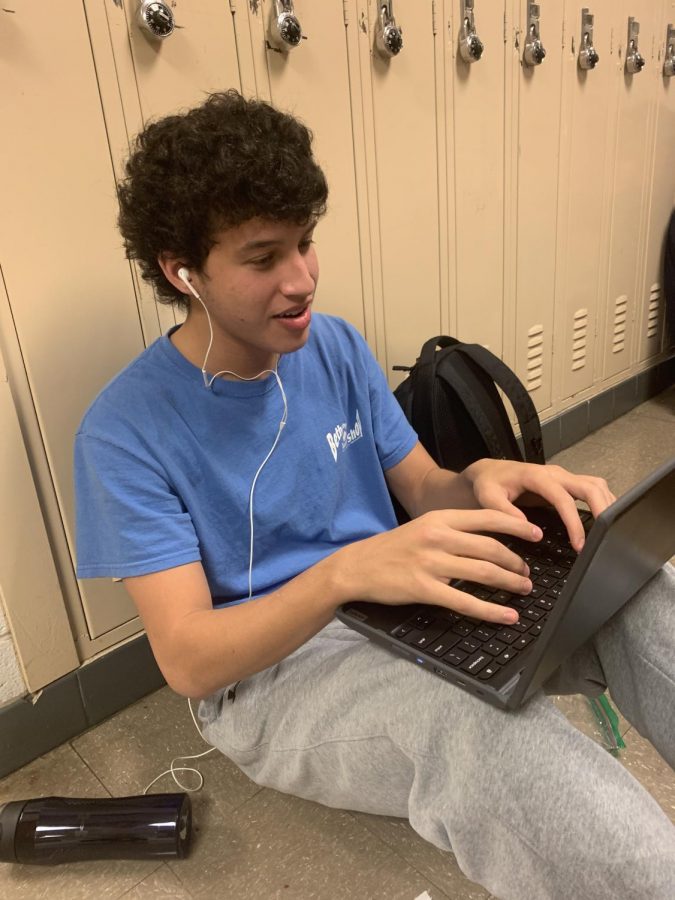
Photo by Ryan McGraw
Junior Harel Sabag studies for his physics test at lunch while listening to music on Nov. 17.
Students often listen to music while they are doing homework or studying for a test. This raises the question of whether listening to music actually helps you focus or retain information.
One side is that listening to music is shown to have positive effects on focus. According to Study.com, studies have shown that background music can improve focus on a task by providing motivation and improving mood. Junior Allie Museles agree with this saying, “When I listen to music while studying, I get more into my work and get in a better mood, which helps me concentrate more on my work.”
Music can also help fight off anxiety. Anxiety-filled students should pop in earbuds before studying. It will help them feel relaxed and allow them to focus on their task. According to USA Today, “ One study found that music’s effect on anxiety levels is similar to the effect of getting a massage.” The music type has a big effect on how it will affect your brain. According to Healthline, you should avoid music with words because other words going through your brain can distract you. Slow classical music is recommended, but if you do not like classical music, some good substitutes are electronic, space or ambient. It is also important you keep a low volume, so the music is in the background. Lastly, do not listen to fast-paced and changing songs, as it can distract your brain. “I usually listen to rap music when I am studying, but I think I should give classical music a try to see if it improves my studies,” senior Sam Gross said.
When I listen to music while studying, I get sucked into the song and lose concentration on my work.
— Matt Repie
Although music is proven to have benefits to focus, it also has negative effects as well. Some students find that music is a distraction during studying and that they can’t focus. “When I listen to music while studying, I get sucked into the song and lose concentration on my work,” sophomore Matt Repie said.
Music also has some proven disadvantages to memorization. According to The Music University, music impairs your brain’s cognitive abilities, making it difficult to memorize information. The changing words and fluctuation of tunes throws you off whenever you try to memorize, causing your studying to be more challenging.
At the end of the day, it comes down to the student’s preference. If you can listen to music and concentrate, the music will relax you, allowing you to study easier. But if you are not able to concentrate while listening to music, it will make your studying much harder.
Your donation will support the student journalists of Thomas S. Wootton High School. Your contribution will allow us to purchase equipment and cover our annual website hosting costs.
Senior Ryan McGraw is senior sports editor plus in his fourth year with Common Sense. When not writing, Ryan enjoys playing football, basketball,...

Unethical psychological studies impact participants, society
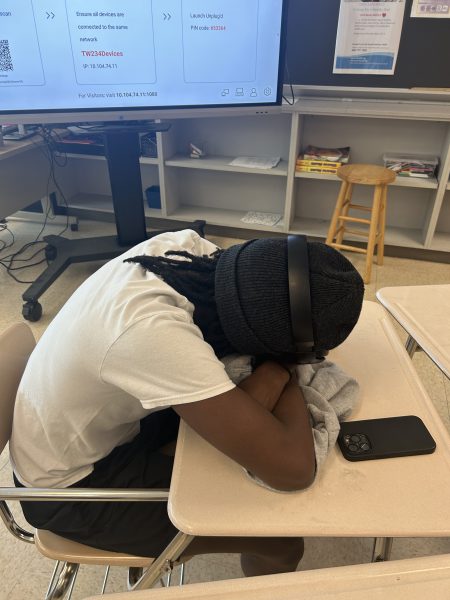
Would later start to school day benefit students?

Is MCPS doing enough to reduce carbon dioxide emissions?
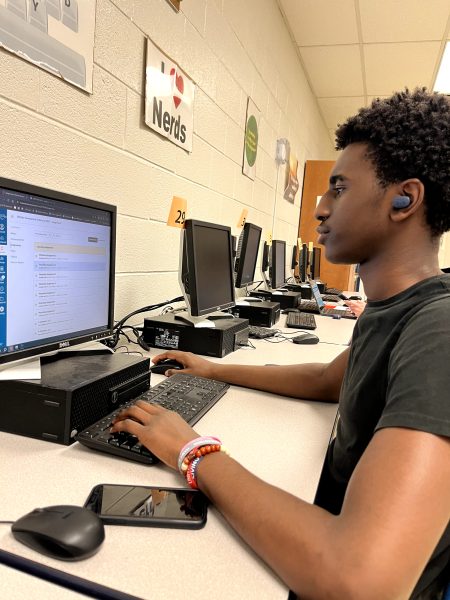
Does music increase productivity?

Are college counselors worth it: My experience

Should uniforms be required at all schools?

Dark romance: The romanticization of trauma

Student leadership changes raise questions of bias when choosing members

Test prep can be worth paying high costs
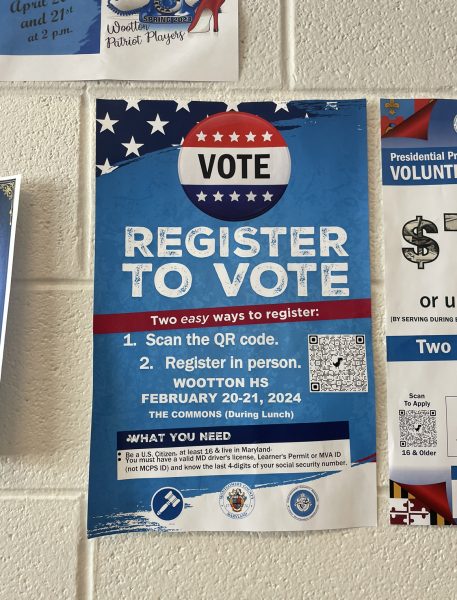
Allyship in the Election Year
The Student News Site of Thomas S. Wootton High School
- Print Edition
- Advertising
- Subscriptions
- Editorial Policy
- Staff Profiles
- Scores and Schedules
Comments (0)
Cancel reply
Your email address will not be published. Required fields are marked *
Should you listen to music while working? Here's what experts say

How prone you are to boredom plays an unexpected role. Image: REUTERS/Marcos Brindicci
.chakra .wef-1c7l3mo{-webkit-transition:all 0.15s ease-out;transition:all 0.15s ease-out;cursor:pointer;-webkit-text-decoration:none;text-decoration:none;outline:none;color:inherit;}.chakra .wef-1c7l3mo:hover,.chakra .wef-1c7l3mo[data-hover]{-webkit-text-decoration:underline;text-decoration:underline;}.chakra .wef-1c7l3mo:focus,.chakra .wef-1c7l3mo[data-focus]{box-shadow:0 0 0 3px rgba(168,203,251,0.5);} Christian Jarrett

.chakra .wef-9dduvl{margin-top:16px;margin-bottom:16px;line-height:1.388;font-size:1.25rem;}@media screen and (min-width:56.5rem){.chakra .wef-9dduvl{font-size:1.125rem;}} Explore and monitor how .chakra .wef-15eoq1r{margin-top:16px;margin-bottom:16px;line-height:1.388;font-size:1.25rem;color:#F7DB5E;}@media screen and (min-width:56.5rem){.chakra .wef-15eoq1r{font-size:1.125rem;}} Future of Work is affecting economies, industries and global issues

.chakra .wef-1nk5u5d{margin-top:16px;margin-bottom:16px;line-height:1.388;color:#2846F8;font-size:1.25rem;}@media screen and (min-width:56.5rem){.chakra .wef-1nk5u5d{font-size:1.125rem;}} Get involved with our crowdsourced digital platform to deliver impact at scale
Stay up to date:, future of work.
Given how many of us listen to music while working, studying, or doing other cerebral work, you'd think psychology would have a set of clear answers as to whether the practice is likely to help or hinder performance. In fact, the research literature is rather a mess (not that that has deterred some enterprising individuals from making bold claims ).
There's the largely discredited "Mozart Effect" – the idea that listening to classical music can boost subsequent IQ, except that when first documented in the 90s the effect was on spatial reasoning specifically, not general IQ. Also, since then the finding has not replicated, or it has proven weak and is probably explained as a simple effect of music on mood or arousal on performance. And anyway, that's about listening to music and then doing mental tasks, rather than both simultaneously. Other research on listening to music while we do mental work has suggested it can be distracting (known as the "irrelevant sound effect"), especially if we're doing mental arithmetic or anything that involves holding information in the correct order in short-term memory.
Now, in the hope of injecting more clarity and realism into the literature, Manuel Gonzalez and John Aiello have tested the common-sense idea that the effects of background music on mental task performance will depend on three things: the nature of the music, the nature of the task, and the personality of the person. "We hope that our findings encourage researchers to adopt a more holistic, interactionist approach to investigate the effects of music (and more broadly, distractions) on task performance," they write in their new paper in Journal of Experimental Psychology: Applied .
Listening to music while working - Reaserch
The researchers recruited 142 undergrads (75 per cent were women) and asked them to complete two mental tasks. The simpler task involved finding and crossing out all of the letter As in a sample of text. The more complex task involved studying lists of word pairs and then trying to recall the pairs when presented with just one word from each pair.
Each task was performed with music while working - listening to one of two versions of a piece of elevator-style instrumental music – composed for the research – or no music. One version of the music was more complex than the other, featuring additional bass and drum tracks (both versions are available via the Open Science Framework ). Also, depending on the precise experimental condition, the music was either quiet or louder (62 or 78 decibels). The participants also completed part of the "boredom proneness scale" to establish whether they were the kind of person who likes plenty of external stimulation or not (as measured by their agreement with statements like "it takes a lot of change and variety to keep me really happy").
Participants' performance was explained by an interaction between the task, the music, and their preference for external stimulation. When performing the simpler task, participants not prone to boredom did better while listening to complex music than simple music or no music, whereas boredom prone participants showed the opposite pattern, performing better with no music at all or simple music. In terms of volume, the low boredom prone were better with quiet complex music, whereas the boredom prone did better with louder complex music.
The researchers' explanation for music while working is that for low boredom people who aren't so keen on external stimulation, the quieter, more complex music provided just enough distraction to stop them from mind wandering from the simple task, thus boosting their task focus and performance. In contrast, the more boredom prone participants who like external stimulation tuned in too much to the complex music and were overly distracted by it, thus performing worse than when working in silence.
For the more complex task, the precise nature of the music while working (its complexity and volume) made no difference to results. But people low in boredom proneness benefited from having any kind of music in the background (the researchers aren't sure why, but perhaps there were mood or arousal-based benefits not measured in this study), whereas once again the boredom prone folk with a preference for external stimulation again actually performed better with no music.
Though these findings may seem counterintuitive, the researchers' explanation on whether music while working is good or bad is that, for boredom-prone people, the complex task provided adequate stimulation and background music interfered with this productive engagement. Supporting this interpretation, the more boredom prone participants outperformed their less boredom prone peers at the task in the no-music condition (and at an earlier, baseline cognitive test), suggesting they engaged better with the tasks (the researchers additionally noted that this result challenges the way that boredom as an emotion is usually seen as a bad thing, suggesting "it can predict constructive outcomes, such as better complex task performance").
If you consider yourself as prone to boredom and craving of external stimulation, a tentative implication of these findings – bearing in mind they are preliminary – is that you might be better off studying or do other cerebral work without music in the background, at least not music that is too complex. On the other hand, if you are less craving of stimulation, then paradoxically some background music could boost your performance. As the researchers stated: "we offer evidence against the commonly held belief that distractions like music will always harm task performance." They added, "our findings suggest that the relationship between music and task performance is not 'one-size-fits-all'. In other words, music does not appear to impair or benefit performance equally for everyone."
Have you read?
Why memories of music cannot be lost to alzheimer's and dementia, habits come from what we do, not what we want to do, streaming music isn’t as green as you might think. here’s why.
Part of the problem with interpreting the results about music while working is in the ambiguity of the aspect of boredom proneness that the researchers looked at – "preference for external stimulation". Past research has generally considered boredom proneness to be associated with less desirable aspects of personality, such as having less self-control and being more impetuous, and this could fit with the idea that boredom prone participants in this research were more distracted by background music. However, as mentioned, the participants scoring higher on "preference for external stimulation" generally performed better at the tasks, thus raising questions about what aspect of personality and/or mental aptitude was really being tapped by this measure. It doesn't help matters that there was no direct measure of attentional control and focus in the study. (In terms of other relevant personality traits, prior research has found that introverts are more distracted than extroverts by highly arousing music).
Other obvious limitations include the question of how much the featured tasks resemble real-life challenges, and the fact that people often listen to music they know and like rather than unfamiliar, instrumental music.
Still, it's laudable that the current research on music while working attempted to consider how various factors interact in explaining the effect of music on mental performance. Gonzalez and John Aiello concluded, "we hope our research will serve as a starting point for more systematic investigation of music."
Don't miss any update on this topic
Create a free account and access your personalized content collection with our latest publications and analyses.
License and Republishing
World Economic Forum articles may be republished in accordance with the Creative Commons Attribution-NonCommercial-NoDerivatives 4.0 International Public License, and in accordance with our Terms of Use.
The views expressed in this article are those of the author alone and not the World Economic Forum.
Related topics:
The agenda .chakra .wef-n7bacu{margin-top:16px;margin-bottom:16px;line-height:1.388;font-weight:400;} weekly.
A weekly update of the most important issues driving the global agenda
.chakra .wef-1dtnjt5{display:-webkit-box;display:-webkit-flex;display:-ms-flexbox;display:flex;-webkit-align-items:center;-webkit-box-align:center;-ms-flex-align:center;align-items:center;-webkit-flex-wrap:wrap;-ms-flex-wrap:wrap;flex-wrap:wrap;} More on Jobs and the Future of Work .chakra .wef-17xejub{-webkit-flex:1;-ms-flex:1;flex:1;justify-self:stretch;-webkit-align-self:stretch;-ms-flex-item-align:stretch;align-self:stretch;} .chakra .wef-nr1rr4{display:-webkit-inline-box;display:-webkit-inline-flex;display:-ms-inline-flexbox;display:inline-flex;white-space:normal;vertical-align:middle;text-transform:uppercase;font-size:0.75rem;border-radius:0.25rem;font-weight:700;-webkit-align-items:center;-webkit-box-align:center;-ms-flex-align:center;align-items:center;line-height:1.2;-webkit-letter-spacing:1.25px;-moz-letter-spacing:1.25px;-ms-letter-spacing:1.25px;letter-spacing:1.25px;background:none;padding:0px;color:#B3B3B3;-webkit-box-decoration-break:clone;box-decoration-break:clone;-webkit-box-decoration-break:clone;}@media screen and (min-width:37.5rem){.chakra .wef-nr1rr4{font-size:0.875rem;}}@media screen and (min-width:56.5rem){.chakra .wef-nr1rr4{font-size:1rem;}} See all

Age diversity will define the workforce of the future. Here’s why
Susan Taylor Martin
May 8, 2024

From start-ups to digital jobs: Here’s what global leaders think will drive maximum job creation
Simon Torkington
May 1, 2024

70% of workers are at risk of climate-related health hazards, says the ILO
Johnny Wood

International Workers' Day: 3 ways trade unions are driving social progress
Giannis Moschos

Policy tools for better labour outcomes
Maria Mexi and Mekhla Jha
April 30, 2024

How to realize the potential of rising digital jobs
Stéphanie Bertrand and Audrey Brauchli
April 29, 2024
- T.H.E – Podcasts

Why to Listen to Music While Doing Homework

Music is a proven tool that can help you concentrate. However, it’s not easy for some people to focus when even a light sound reaches their ears. Some people can even forget instantly that they were looking for essay writing help by Essayhub.com and remember about it when it’s too late. It can be also a sign of irritability but can be fixed with the help of music as well. The trick is to test what music your mind perceives better.
Psychologists constantly repeat that a person should adhere to the schedule and strict regime to increase their work efficiency.
It is important to create the same work environment while doing your homework. Your table should be free of distracting things, and you should have enough light not to strain your eyes. Besides, your chair should be comfortable enough not to cause tension in your muscles. And you should turn on classical music in the background if you want to completely focus on monotonous work and immerse yourself in implementing your tasks. Besides, they recommend putting on “special” clothes for homework and making a certain “ritual” before the beginning. All these stereotypical, permanent things allow you to get ready for doing your mental work and increase your efficiency. If you turn on music every time you start doing your homework, it becomes one of these stereotypes that triggers your mental activity. Thus, when I am going to write my essay , I turn on the same musical composition every time, so my brain tunes to exactly this task. So, what benefits can you get from listening to music while doing your homework?
It helps quickly relax before learning
Specialists from the US Department of Homeland Security conducted a musical experiment and confirmed that music helps cope with stress. The study was based on combinations of different frequencies, durations, and amplitudes of tracks, which their test subjects were listening to; they watched their state and ability to relax. Most of the soothing compositions were variants of classical pieces close to Chopin’s music. Such music reduced the level of cortisol in the blood, had a sedative and analgesic effect. Thus, if you want to relax after classes and distract yourself a bit, you can turn on appropriate music for about 10 minutes. Another option to reduce stress is to order an essay paper to meet a deadline.
It helps concentrate
If you find it difficult to force yourself to start doing your homework, you should try to find motivation and create the right conditions for comfortable brain activity. Scientists have found that Mozart music and similar compositions increase alertness and improve concentration. According to a Stanford University Medical Center report, music affects areas of the brain associated with concentration and memory development. Scientists conducted a study using MRI. They tracked which parts of the brain are most active. Experts have concluded that Baroque music, written in past centuries, helps people gather their thoughts and process a rich flow of information.
It improves memory
Mozart music helps significantly improve memory and activate neural connections that affect cognitive performance. Scientists divided the participants into several groups, and each of them was listening to Mozart and Beethoven’s compositions. As a result, it was noted that those who listened to Mozart’s sonatas had increased intellectual indicators. People remembered new information better and were less biased about solving an unfamiliar problem. Another group of participants that was listening to Beethoven didn’t show such obvious changes, so the results of the experiment were called the Mozart effect. Thus, if you want to improve your memory and learn everything faster, play Mozart compositions in the background.
It helps deal with noisy roommates
It often happens that people who coexist in the same space interfere with each other’s work. Thus, you can live with a roommate who is fond of talking and who doesn’t care about your presence and necessity to keep silent. So, you can get distracted by such a person, their endless phone calls, and conversations. Noise-canceling headphones and music can help solve this problem. While doing your homework, music can become the only possible way out if you don’t want to go to the library, of course.
But in addition to homework, students often have to write essays on various subjects. Someone does not have free time, and someone does not have enough writing skills to perform such a creative task. Online services for students write test papers, essays, dissertations, etc. Written papers are interesting to read, they always correspond exactly to the task at hand. But how to choose a proven service? On essaysadvisor.com , you can find detailed reviews of companies that specialize in student help. This way, you will save a lot of time on the search.
It helps increase creativity
Suppose you don’t want to die from boredom while working on some monotonous assignments. In that case, you can put on headphones, set the desired volume, choose your favorite playlist, and immerse yourself into the process with bigger pleasure. Be that as it may, loud music is unlikely to help when it comes to work that requires activation of the right hemisphere. It turns out that the average noise level is a kind of creative catalyst. By complicating the process of processing information, background noise stimulates abstract thinking and tunes the human brain into a creative work mode. That is why public places, such as cafes, dams, and parks, attract creative people.
It helps feel blue without consequences
Music psychologist Stefan Kelsch has concluded that listening to sad music positively affects empathic qualities and helps a person cope with problems. He believes that the listener associates themselves with the performer and empathizes with them. Currently, the brain regulates emotions, allowing you to let out negative emotions. Such sadness does not cause consequences on a par with real sadness that arises in difficult situations. Thus, sad music promotes the experience of pain without harm to a student’s psychological health.
It helps boost dopamine production
The hormone dopamine is produced as a reward for achieving goals and helps create a good mood. A study with a tracing of neural mechanisms using tomography showed that the subjects experienced an increase in blood flow during the experiment, activated parts of the brain responsible for emotions, excitement, and motivation. Listening to music that you like activates the brain’s reward system on a par with eating sugary, fatty foods, or socializing with loved ones.
RELATED ARTICLES MORE FROM AUTHOR

Great News For Swifties As Taylor Swift Breaks Record With “Tortured Poets Department”

How To Transform Voices Effortlessly With lalal.ai Voice Changer: A Step-By-Step Guide

Eras Tour – London: 4 Things You Must Take Along As A Certified Swiftie
Leave a reply cancel reply.
Save my name, email, and website in this browser for the next time I comment.
Recent Posts

Reflect On ‘Acceleration’, Jonas Saalbach’s New Mini Album, Available Exclusive On Radikon

liquidfive Teams Up With CRÜPO, NGHTIME! And Tima Dee On Slick New Vocal House...

Jasmine Thompson And Felix Jaehn Collaborate For The First Time Since Their 2015 Hit...

TroyBoi Releases ‘HÍBRIDO’

Frankey & Sandrino Return To Innervisions With ‘Memories’ EP
by Andrej
Should I Let My Child Listen to Music While Doing Homework?
0 Comments

August 6, 2022 in Homework
Many children find homework assignments to be boring or even difficult. They would much rather do something fun instead. That is why they want to extend the fun part of the day well into the part that is dedicated to school work. One way they try to do it is by getting their parents to let them listen to music while doing homework. The question now is whether we should allow them to have it their way.
Most children should not listen to music while doing homework. Music can be very distracting and can easily pull the child’s concentration away from the main task. Research shows that background music affects our working memory and music with vocals makes it harder to focus.
If you are interested in learning more about the effects of listening to music while doing homework, I invite you to read further as I have done a bit more research on this topic and you might find it quite helpful.
The Pros of Listening to Music While Working on School Assignments
That’s right. Music does have its place when it comes to school and learning.
It has been proven that music can help us get into a better mood. And not just that. It can help us get excited and become more energized.
This is something that you can take advantage of.
Well, most children don’t like homework. When they have to start working on it, they usually resist it, whine about it and try to postpone the work for as long as possible.
It all makes sense since homework requires them to use their brain and work hard on something that might be quite difficult for them. Just Think about mathematics and how much brain power it requires you to do certain calculations.
It’s tiring and our kids know this.
It’s simply no fun.
So, what can we do to help our children become more excited about doing the homework?
One thing we can do is to allow them to listen to the music that they like prior to doing the homework.
Let them enjoy a few songs and watch how their mood changes.
The key here is to let your child listen to music that gets them in a better mood.
It’s very likely that this will have a positive effect on how your child approaches the homework.
As a result, your child will very likely do the homework faster and with less resistance.
Why is this so?
Well, I believe that when we’re in good mood, we are willing to try a little bit harder and we’re willing to stick with challenging tasks that we would otherwise rather avoid.
These thoughts have actually been confirmed in research that was conducted in the 1990s when the British band Blur was at its height of popularity. The researchers found out that children who listened to the band Blur did better on the test and the reasoning behind it was that the kids enjoyed the music and were therefore in a better mood.

Another great example of how music affects our performance can be seen in sports, more specifically, it can be seen in athletics.
If you have ever watched 100m or 200m sprints, then you’ve probably noticed that many athletes wear headphones before the run.
They are listening to the music that they find stimulating and gets them in the mood that allows them to perform in the best possible way.
However, they take their headphones off before they do their main job.
One reason is obviously that running with headphones on isn’t as effective as running without them.
The second reason is that the headphones and the music become a distraction once they have to perform at the top level.
That’s when they have to be perfectly focused on hearing the start signal and then getting out of the blocks and across the finish line as quickly as possible.
Their job is to perform at the highest level so they probably know what they are doing.
We can learn from that.
If the music helps the athletes perform better because it gets them in the right mood, then it’s very likely that the right kind of music can also help your child get in the right mood to do the homework with more focus and in less time.
Just make sure that your child stops listening to the music before starting the homework.
Now in the next segment, I’ll explain why children shouldn’t listen to music during school work.
The Cons of Listening to Music While Working on School Assignments
The problem with listening to music while doing homework or while studying is that it can be quite distracting.
Our brains are not meant to be multitasking.
Every time there is more than one activity that we are working on, our brains need to constantly switch between them.
Every time the switch happens, it takes a certain time to get back to where we were before with that task. So, it’s always a small step back and little by little these small steps make a huge difference.
This means that it not only takes away precious time but it also takes away some of the energy that would be better spent on focusing on one task at a time.
Obviously, we don’t want our kids to be multitasking.
Even though it seems that background music cannot be that distracting it actually can be.
Research shows that when there’s music in the background, and especially music with vocals, our working memory gets worse. Consequently, reading comprehension decreases and this, in turn, affects how well we perform.
So, if you don’t want your child to be spending an excessive amount of time doing homework, you might want to turn off the music at that time.
No child should spend an excessive amount of time behind a desk. In order to properly develop into healthy adults, children need to be physically active and play with other kids to develop social skills they will need to become confident individuals.
Therefore, it is best if you do not allow your child to listen to the background music while doing after-school assignments.
When is it OK to Let Your Child Listen to Music While Doing Homework?
Even though music can be quite distracting, it can still be better to have some background music on in situations where you cannot guarantee peace and quiet.
If you live in an apartment with loud neighbors or you have other kids who can be loud, then putting some background music on can help tune out these other noises.
Music without vocals and with a constant rhythm and tempo can be far better than random screaming that is guaranteed to pull your child’s focus away from the school work.
And you know how difficult it is to regain focus and get back to where you were before.
If you have to block out the background noise, consider music without vocals, that has a steady rhythm and isn’t too loud.
If you’re not sure where to find music without vocals, head on to YouTube where you’ll be able to find many different productive music soundtracks. Just make sure to play it just loud enough to block out the distractions and soft enough to not be distracting by itself. And before you introduce the music to your child, try it out yourself and make sure it’s suitable.
A proper environment is crucial if you want your child to stay focused while doing homework and other school work. That’s why I have written an article where I share with you, how to create a perfect place for your child to study .
About the author
Leave a Reply
Your email address will not be published. Required fields are marked
Email * * *
Save my name, email, and website in this browser for the next time I comment.
Subscribe to get the latest updates
- Have your assignments done by seasoned writers. 24/7
- Contact us:
- +1 (213) 221-0069
- [email protected]

Is Listening to Music while doing Homework OK: 21 best Songs
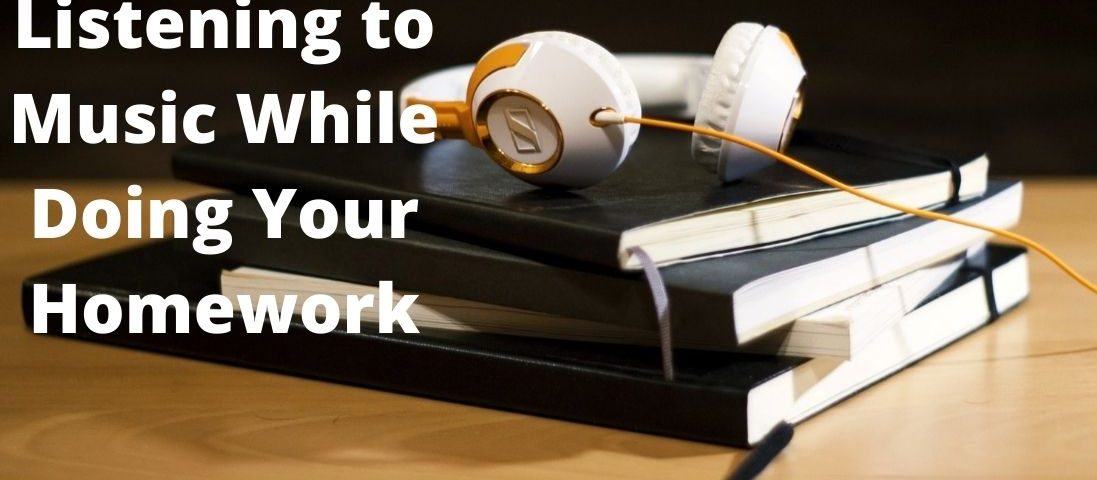
Listening to music doing homework
Listening to music while doing your homework has always caused divisions in its effectiveness. Some argue that it is advantageous, while others argue that it does not help.
As long as the music doesn’t affect your concentration, then there is no reason why you should not play several songs as you do your homework.
This will help you if you want to handle assignments well. However, if you have no time for that, you hire an assignment writer to do the job for you.

Need Help with your Homework or Essays?
Is it ok to listen to music while doing homework.
The answer to this question is twofold. Music can help put us in a better mood, which is good for studying. Music can also distract us, which is not good when studying.
It is OK to listen to music while doing homework if it does not distract you from your studies. In fact, if you get used to listening to your favorite songs, you can increase the amount of time you spend doing assignments. However, listening to music can be a distraction from your studies if you are not used to it or if it is not your favorite playlist.
For music to be effective when studying, the rate at which it disturbs you should be reduced, and the rate at which it makes you feel good should be increased.

Research has shown that listening to music while doing tests can boost your scores.
This is due to the ability of music to stimulate parts of the mind that play a role in mathematical ability.
This theory about maths was debunked, and it was concluded that the main reason music can make you do well in tests is its ability to put you in a better mood.
Kids enjoyed more pop music than classical music.
Children who listened to pop did better in tests, as per the research. When music makes us feel good, we try harder, and our minds are willing to take on challenging tasks.
Music can distract us when studying. When you are studying, your mind manipulates several types of information at once and music can distract that.
The working memory gets worse when listening to music with vocals. Vocals and music lyrics can decrease reading comprehension. Introverts are easily overstimulated and listening to music while studying can distract them more than extroverts.
Bill Thompson, a researcher based in Australia, found that the performance of people when studying can be decreased by listening to music that is both loud and fast.
Those who listened to slow and soft music were less distracted. The difference was not too big. The decrease in performance was minimal.
Therefore, it is fair to conclude that listening to music while you are studying is fine if it puts you in a good mood and it is not too fast or loud.
If you are not an introvert, listening to music while studying is less distracting. Less wordy music is fine to listen to while studying.
Why Do Students Listen to Music While Studying?
If you turn on music every time you study, it can become a stereotype that can help trigger your mental activity.
Students listen to music while studying to trigger their mental activity as they study. Some report that they enjoy music playing in the background as part of the studying environment. Students also listen to music as a form of entertainment while doing homework, a task they find boring.

Music can prepare and tune your mind to do assignments.
The following are reasons why students listen to music while doing their assignments:
1. It Helps Students Relax before Learning
Music can help you cope with stress.
In research conducted by the US Department of Homeland Security, it was concluded that soothing music consisted of classical pieces, and it helped reduce the level of cortisol in the blood.
The music had an analgesic and sedative effect, too. Turning on the appropriate music can help you relax after a long day of classes and concentrate on your assignments.
2. Improves Concentration
When it is hard for students to concentrate and do their homework, music helps them to find motivation. Music helps create conditions that are right and comfortable for brain activity.
Mozart music, for example, according to scientists, helps improve alertness and concentration. Students can gather information and thoughts as well as process a rich flow of information. Using MRI, scientists concluded that music affects the most active parts of the brain.
3. It Improves Memory
Soft music plays a significant role in activating neural connections that impact cognitive performance as well as improving memory. Soft music increases intellectual indicators.
It enables students to remember new information better and be less biased in solving very unfamiliar problems. Students can rely on soft music to learn faster and improve memory.
4. Helps Increase Creativity
The average noise level is an example of a creative catalyst. If boredom is killing you as you are working on several assignments, you can put on your headphones to your desired volume and set your favorite playlist.
This gives students some pleasure as they work on their assignments. Always note that loud volumes may end up ruining your concentration.
Background noises complicate the process of processing information and stimulate abstract thinking, hence tuning the brain into a creative work mode.
5. Helps Deal with Noisy Roommates
Most students live together in school hostels. Roommates at many times interfere with each other’s work. A roommate can be a very talkative person and merely cares about the presence of others.
Sometimes, they don’t see the need to keep silent. Music and noise-cancelling headphones can easily help you deal with this problem. Music can be the only way you have to concentrate on your work if the library is closed.
5. Music Helps Feel Blue Without Any Consequences
Music boosts the psychology of students. Students often think about their problems when they are studying. According to psychologist Stean Kelsch, positively listening to sad music affects emphatic qualities.
A student can then easily cope with problems. Students listen to performers, associate with them, and empathize with them. The brain then can control emotions and allow the student to let out negative emotions.
The sadness that comes with listening to sad music does not cause consequences that are the same as real sadness caused by difficult situations.
6. Music Motivates Students to Study
Students face the challenge of knuckling down to studies. Sticking to studies once you have started is also a problem among many students.
Students’ favorite tunes help them deal with this by creating a playlist of songs that get them in the zone. If you don’t feel like doing your homework , you can use music as a motivator.

They get excited about the assignment they are about to do and focus on the outcomes.
Listening to music helps release dopamine in the brain, which is a feel-good chemical, according to scientists.
Tracing of neural mechanisms using tomography was used by scientists in the study.
It showed that listening to music helps increase blood flow and activate the brain parts that are responsible for emotions, motivation, and excitement.
Get a Brilliant Essay today!
Let our essay writing experts help you get that A in your next essay. Place your order today, and you will enjoy the benefits.
List of 21 Good Songs to Listen to While Doing Homework
The challenge when it comes to selecting music to listen to when doing your homework comes with the type of songs. Do not choose music that distracts your need to stay focused.
Everyone can have a different list of songs depending on their favorite playlists. The music preference can be piano, acoustic guitar, classical music, Jazz, reggae, or any other genre.
The following is an example of a playlist that you can listen to when doing your homework:
- Jelly 292 –Jimi Hendrix
- Don’t play with my heart – India Shawn
- Death bed coffee for your head – Powu t Beabadoobee
- Friends Don’t Look at Friends That Way – Tate McRae
- Say Something – A Great Big World, Christina Aguilera
- The Birth and Death of the Day –Explosions in the Sky
- What If I Told You I Love You – Alie Gate
- I hate you, I love you – Gnash t Olivia O’Brien
- Ad Astra Per Aspera –Acceptance
- Out of My Mind- John Mayer
- Happier – Olievier Rodrigo
- Shine on You Crazy Diamond (Parts VI-IX) –Pink Floyd
- Guilty Cubicles –Broken Social Scene
- Red-Eye –The Album Leaf
- You Don’t Even Know – The Internet ft. Tay Walker
- Open Eye Signal – Jon Hopkins
- Symphony No. 40 in G minor, First Movement – Mozart
- Canon. –Zox
- Svefn-G-Englar –Sigur Rós
- Stone Cold Heart – Ana Whiterose x RUDENKO
- Let Me Down Slowly – Alec Benjamin.

Josh Jasen or JJ as we fondly call him, is a senior academic editor at Grade Bees in charge of the writing department. When not managing complex essays and academic writing tasks, Josh is busy advising students on how to pass assignments. In his spare time, he loves playing football or walking with his dog around the park.
Related posts

Chegg vs Course Hero: Which is Better, Accurate and Safer

Take my online class
Take my Online Class for me: Pay the Best for Reliable Grade

Can Canvas Detect Cheating
Can Canvas Detect Cheating? Switching Tabs, IP or Copy Paste
- Advertise your Music
- R&B Artists
- R&B Videos
- Song Guides
- Best Guitar Lessons Near Me
- Best Singing Lessons Near Me
- Live R&B Radio
- Submit Music
The Best Study Music: What to Listen to While Doing Homework
Students and music cannot be separated because they all love music and some can keep their players on an entire day. Music can help lift mood even when the student is alone in their rooms, relaxing outdoors, or walking. In the study room, not all music will be good when you are doing your homework.
You need to concentrate on getting the answers right because some types of music will just keep distracting you and you might lose an important point. The following music is good to listen to during homework time.
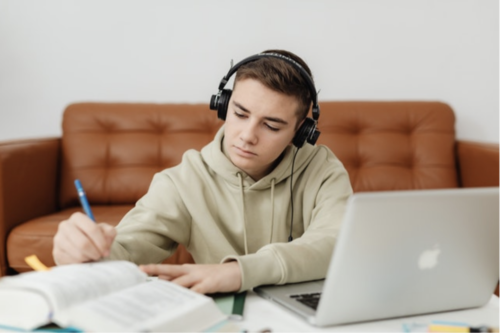
Hip hop is generally called hip hop culture because its lovers believe it promotes a music culture globally. Being one of the oldest music genres, Hip hop blends several tunes and vocals into one piece of a song that is vibrant, confronting, and celebrating life.
This is one of the styles of music a student can listen to while doing homework because it mostly speaks about real-life experiences and encourages a listener when they realize they are not the only ones experiencing a challenging moment. It can help encourage a student do homework even when they feel like the task is too difficult for them.
Other type of Homework help
If you want to do well in college, always make an effort to do all the homework your teacher assigns you. It helps improve learning and you will reap the good fruits of education. Despite your efforts to do your best and complete all academic work, sometimes you feel you need help. You don’t have to worry because Edubirdie can do your homework while you concentrate on your study. You can get help from their professional writers any time because they help every student according to their needs.
Country music
Country hits are mostly associated with things that touch on independence and freedom. The artists sing about situations they went through yet overcame. Some sing about terrible adversities like alcoholism, fighting, rejections, and such incidences and how they eventually overcame. Doing a ton of homework is not always easy because some assignments can be tough and complex. The student might feel it was not meant for them but if they can tune and listen to several country hits, they can start feeling encouraged and go on with their assignments.

Jamaican reggae is characterized by features such as amplified guitars, offbeat quavers, electric guitars, and a large number of drums. It is a genre that is more masculine than feminine and male students love this genre. Although it doesn’t have a unique rhythm, reggae reflects culture, values, and spirituality. Some researchers say listening to reggae can help students do better in math because the spirituality in reggae can help condition the mind to learn. If a student has some math to do in their homework subject, they might consider listening to reggae.
Classical music forms a combination of sophisticated tunes and vocals and this is what makes this genre popular. Researchers believe classical music nurtures the soul and helps grow the mind. Other studies say when a student creates a habit of listening to classical music, their language skills develop fast. They also benefit from improved spatial skills, reasoning skills, and better intelligence. These are benefits that can help a student do their homework better.
Instrumental
Instruments-only music was traditionally used as a substitute for vocals and to create music for dancing. Listening to this genre can help an individual learn better about other cultures and appreciate the expertise of instrumentalists. When used by a student, it can help boost critical thinking and improve development for creativity. These are important skills needed for higher student productivity.
Nature sounds
According to recent data, listening to recorded sounds of nature has many benefits to the mind. It helps reduce stress, pain and increase mood. The study further says listening to natural sounds helps an individual create a sense of safety and they can stop worrying about what is happening outside and concentrate on what is before them. A student can do their homework better when listening to recorded natural sounds.
Music has immeasurable benefits to students while at school, commuting, or relaxing. A student can listen to music to improve cognitive skills and enhance their memory. Students who create a habit of listening to music when doing their homework may enjoy doing their assignments without feeling stressed. Currently, there are over 1,000 music genres in the market and this gives a student freedom to choose which genre is best for them .
Author’s Bio:
Robert Everett is a leading writer and works for a marketing agency where is known for marketing collateral, brochures and PPT designing skills. He’s equally good in his freelancing job, where he helps students do their homework and essays on time and effectively. In his free time, he loves cooking Korean food, watching sports shows and learning digital art.
Related Posts

10 Best Otis Redding Songs of All Time

15 Best Rock Bands of All Time

10 Famous Singers from Hawaii

10 Best Linda Ronstadt Songs of All Time
“unholy” by sam smith: deciphering the song’s profound meaning, 10 best pokémon earbuds for gaming and music.

100 Best Worship Songs of All Time
Worship songs are a powerful form of music that serve to uplift, inspire, and connect people with a higher power...

50 Best Southern Gospel Songs of All Time
The Soul Train Award winner for "Best Soul Site," Singersroom features top R&B Singers , candid R&B Interviews , New R&B Music , Soul Music , R&B News , R&B Videos , and editorials on fashion & lifestyle trends.
Trending Posts
- Greatest Singers of All Time
- Best Rappers of All Time
- Best Songs of All Time
- Karaoke Songs
- R Kelly Songs
- Smokey Robinson Songs
Recent Posts
- 10 Famous Singers from Delaware
- 10 Famous Singers from Connecticut
- 10 Famous Singers from Colorado
- 10 Famous Singers from California
- 10 Famous Singers from Arkansas
- 10 Famous Singers from Arizona
Good Music – Best Songs by Year (All Genres)
- Best Piano Lessons Near Me
- Best Music Gear
Musical Equipment
- Accessories
- Audio Equipment
- Musical Instruments
© 2023 SingersRoom.com - All Rights Reserved

IMAGES
VIDEO
COMMENTS
Many students do their homework and revision while listening to music. Many of them will swear that listening to their favourite songs makes them study better . But does music help or hinder learning?
Students listen to music everywhere: on-the-go, in public transport, in the shower and even when they do their homework. However, the last habit is quite controversial as scientists have different opinions about the effect music produces on studying. Let's analyze the viewpoints of different scholars and decide whether pros or cons of ...
To sum up: research suggests it's probably fine to listen to music while you're studying - with some caveats. It's better if: it puts you in a good mood. it's not too fast or too loud. it's less wordy (and hip-hop, where the words are rapped rather than sung, is likely to be even more distracting) you're not too introverted.
To sum up: research suggest it's probably fine to listen to music while you're studying - with some caveats. It's better if: it puts you in a good mood. it's not too fast or too loud. it ...
Even though experts suggest listening to music can hinder your ability to retain information while studying, some students choose to continue the practice. ... "In general, words are distracting," Smith shared. "So if you want to listen to music while you study, try to listen to something that does not have words, or if it does have words ...
The following reasons show that listening to music when doing your homework is a good idea. ... It can be the perfect time to start doing your homework while listening to music. Music can help you reduce stress, especially when it's not so loud. Even if you may be having some health problems, music can be your stress remover.
Listening to music while doing homework seems harmless, but many studies have shown that listening to popular music with lyrics can hurt reading comprehension and the ability to do complex tasks, but that more "zen-like" and classical music does not. But if your teens' academics are slipping, that's a red flag.
Music that is soothing and relaxing can help students to beat stress or anxiety while studying. Background music may improve focus on a task by providing motivation and improving mood. During long ...
Choosing the right music for homework can help you focus better and learn faster. Around 60% of students tend to listen to music while studying. Researchers also found that listening to music was the most popular side activity for teens who juggled studying with another task.. While we may prefer different genres of focus music, we can all agree that the right playlist has the magical ability ...
In fact, I've been listening to Christmas music while writing this particular post. While doing reading or more complex writing assignments, however, I often have to set aside the music in order to better focus. So you see, it depends on the student and the situation. Sources . Davis, Nicky. "Is It Good to Listen to Music While Studying."
In one of his more recent studies, Perham says, he found that reading while listening to music, especially music with lyrics, impairs comprehension. In this case, it's spoken lyrics, not acoustical variation that impairs productivity. "You've got semantic information that you're trying to use when you're reading a book, and you've got semantic ...
Mozart Effect. But not all music is bad for all students. Sometimes, soothing music or classical music can help a student focus. One British study claims listening to Mozart for 10 minutes produced a "Mozart effect" where test-takers' IQ scores went up 8 or 9 points. A Bulgarian psychologist employed the method of playing Baroque era ...
By Van Thompson. Music is a powerful art form that can bring up emotions, inspire motivation and alter your mood. Students frequently listen to music while studying to make the process less painful and, in some cases, because they believe music will help them learn. The effects of listening to music while studying are mixed, however, and depend ...
Here are some examples: listening to music while practicing a sports skill. talking with strangers while waiting in line. listening to a talk radio program while driving (sometimes) listening to ...
How To Deal With Homework While Listening To The Music. Doing Homework While Listening To The Music: Pros And Cons. "Music is the medicine of mind". "Music heals the soul". "Music is an effective way to increase productivity". You must have heard such statements or very similar during your life. Well there is no doubt in the ...
Students often listen to music while they are doing homework or studying for a test. This raises the question of whether listening to music actually helps you focus or retain information. One side is that listening to music is shown to have positive effects on focus. According to Study.com, studies have shown that background music...
Listening to music while working can be good as well as it can be bad. Researchers have revealed that the need to listen to music when working is based upon personality, the music, and the work involved. ... Though these findings may seem counterintuitive, the researchers' explanation on whether music while working is good or bad is that, for ...
The trick is to test what music your mind perceives better. Psychologists constantly repeat that a person should adhere to the schedule and strict regime to increase their work efficiency. It is important to create the same work environment while doing your homework. Your table should be free of distracting things, and you should have enough ...
The question now is whether we should allow them to have it their way. Most children should not listen to music while doing homework. Music can be very distracting and can easily pull the child's concentration away from the main task. Research shows that background music affects our working memory and music with vocals makes it harder to focus.
Will listening to music while trying to work affect your performance? Rutgers psychology professor Jack Aiello says the answer is not the same for everyone. Aiello, who has researched how music affects the performance of cognitive work, says it depends on the music, task and individual personality. He recommends that if you're telecommuting ...
Josh Jasen. It is OK to listen to music while doing homework if it does not distract you from your studies. In fact, if you get used to listening to your favorite songs, you can increase the amount of time you spend doing assignments. However, listening to music can be a distraction from your studies if you are not used to it or if it is not ...
just keep distracting you and you might lose an important point. The following music is. good to listen to during homework time. Hip hop. Hip hop is generally called hip hop culture because its ...